Week 19: 10 May – 17 May
Executive Summary
- There is a realistic possibility of an overall increase in Argentina’s risk levels following worrying developments regarding infrastructure, economics, and social issues.
- An assault on a prison van in France highly likely signals the offensive capabilities of crime syndicates in the country, and likely increases the risks of violence during the Olympic Games.
- The dismantling of an Iranian army-smuggling operation by Jordan almost certainly demonstrates the Kingdom’s worries about growing anti-government sentiment at home.
- There is a realistic possibility that the Chinese – Russian talks will deepen military cooperation between the two countries, as Beijing likely supports a continuation of the Russia-Ukraine war.
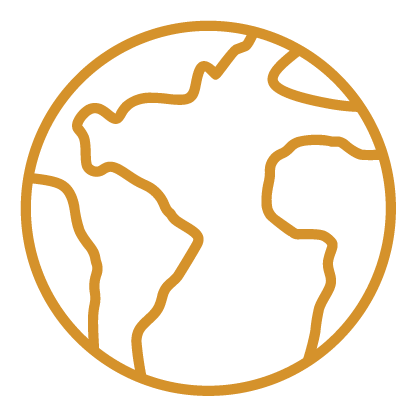


AMER
EMEA
APAC
Canada: Evacuations as wildfire season begins
Argentina: Signals of possible increase in country risk levels
Panama and Colombia: Children crossing Darien Gap increase 40%
France: Van ambush is latest security nightmare for Paris
Slovakia: Assassination attempt on Prime Minister Fico
Israel and Palestine: IDF operations in Jabalia and Rafah
Jordan: Kingdom dismantles Iranian gun-smuggling operation
British Antarctica: Massive oil discovery worries Whitehall
China: Xi and Putin hold bilateral talks
New Caledonia: Proposed reform causes widespread clashes
Global Dates and Events
The most powerful solar storm to hit the Earth in the last 20 years took place during this reporting period. Despite some worries about possible disruptions to power grids and satellite communications, the event did not have any major adverse effects on the general population but caused some degradation in the accuracy of some satellite-based services.
Nakba Day, the commemoration of the expulsion of 750,000 Arab Palestinians from the Palestinian territories during the 1947-1949 Arab-Israeli War, occurred on 15 May. Protests were recorded across Europe, North America, and the Middle East, which focused on opposing current Israeli operations in Gaza.
On 21 May, Ireland, Spain and several other EU members will jointly recognise Palestine as a sovereign state. The move, is likely to result in civil unrest, and may prompt an immediate degradation in relations with Tel Aviv, also affecting Brussels. It was most likely prompted by domestic pressures.
North, Central and South America
Canada: Wildfire season begins
Firefighters in western Canada are fighting the first major wildfires of the 2024 wildfire season. Thousands of residents have been ordered to evacuate the areas around the town of Fort Nelson, British Columbia, as an out-of-control wildfire approaches the area which has already burnt an estimated 20,000 acres. Reporting from the Canadian Interagency Forest Fire Centre indicates that Canada is currently struggling to contain nearly 120 major wildfires, with most located in the provinces of British Columbia and Alberta.
Solace Global Assessment: Canada’s wildfire season typically runs from April to September or October when temperatures decrease, and precipitation increases. However, the extent of the current wildfires, in terms of both size and intensity, has prompted concerns that this year’s wildfire season will be worse than average. Unseasonably warm temperatures and drought have almost certainly shaped conditions favourable to the spread of wildfires. The current drought monitor map released by the Government of Canada highlights severe, extreme, or exceptional drought conditions across significant portions of British Columbia, Alberta, the Northwest Territories, and Saskatchewan provinces. Additionally, nearly half of the country is experiencing moderate drought, indicating a heightened risk of wildfires spreading rapidly across various regions of Canada. In 2023, nearly three-quarters of the Northwest Territories were forced to flee their homes, an area traditionally immune to wildfires. The fires have also highlighted the fragility of rural communities that often rely on limited infrastructure. Communities not directly affected by the wildfires have suffered from internet and phone blackouts with residents unable to contact emergency services, failed electronic payments, ATM failures and transport disruption, with some communities reliant on only one supply route. The scale of the wildfires has been attributed to climate change with experts warning that it will result in areas historically spared by wildfires being affected. There have already been calls for Canada to tighten its emission caps on the oil and gas sector – a contentious issue in a country where these industries contribute approximately 5-7 per cent of its GDP. As the wildfires continue to spread, there is a high probability that climate-motivated protests will increase across Canada.
Panama and Colombia: Child migration in Darien Gap up 40% in 2024
A UNICEF report estimates that, so far in 2024, more than 30,000 children have traversed the dangerous routes that cross the jungle between Colombia and Panama, out of a total of 140,000 people. UNICEF predictions project that up to 800,000 migrants, 160,000 children, will travel through the area this year. The Darien Gap is one of the last completely undeveloped regions on earth, and traversing the thick jungle poses massive health risks, with chances of rescue almost non-existent. Panama’s President-elect José Raúl Mulino has vowed to shut down migration routes through the country.
Solace Global Assessment: So far, Panama has been a necessary stop for migrants seeking to reach the US from South America. The country’s governments have aided migration, providing busses to transport migrants from the edge of the Darien Gap to the country’s northern borders. Still, the Gap continues to represent a particularly perilous journey, but it is likely preferred by migrants who do not have the means to tackle maritime routes. Moreover, organised crime in Colombia has increasingly profited from helping migrants reach and cross the approximately 100 kilometres of jungle. Still, migrants paying smugglers face increased risks, including sexual assault, theft, and murder. Additionally, the increase in migrant inflows has likely favoured the development of local bandit networks, which carry out violent attacks and kidnappings on the transiting migrants. President Mulino, who will take office on 1 July, is likely responding to increasing pressure from the US government, which is increasingly trying to stifle migration at its southern border. With little border infrastructure currently in place, it is almost certain that efforts in this direction will be conducted through a massive deployment of security forces in and around the Gap, seeking to intercept migrants before they reach the inhabited parts of the country. However, such a measure would likely exacerbate humanitarian issues in the Darien Gap, possibly increasing transit times and therefore worsening health risks. Moreover, if it achieves its deterrent purpose, it will almost certainly result in an increased number of migrants undertaking the more perilous maritime routes, possibly creating broader regional consequences, as well as impacting maritime transport and activity in the Gulf of Panama.
Argentina: Budget records further surpluses, but other developments signal increasing risk levels.
The Argentine government announced its fourth consecutive month of budget surpluses, the first in two decades. However, this reporting period has seen a series of incidents that may hint at a general increase in the overall risk levels for Argentina. This piece tries to present a few snapshots, highlighting economic, social, and infrastructural issues.
Solace Global Assessment: The budget surplus is likely to further boost Milei’s claims that his unorthodox economic policies are working to change course on decades of economic stagnation. Coming from a period of severe protests, it may improve the president’s approval ratings, currently hovering at around 50 per cent. While praised by the International Monetary Fund (IMF) for his reforms, Milei is still seeking to unlock further IMF funds, in addition to the USD 800 million that are part of the loan programme’s current schedule, and which are needed to repay interest on Buenos Aires past borrowing. After taking office, Milei simply warned that “there is no money”, and the statement, months into the administration, has taken a tangible form. On 10 May, a major train collision in the Palermo neighbourhood of Buenos Aires resulted in at least 90 injuries and has promoted a judicial enquiry. Early indications suggest that the copper cable used to carry power along the tracks had been stolen leading to a signal failure. Union leaders had been demanding that the stolen cables be repaired for ten days before the incident to which the government allegedly replied that there were no funds for spare parts. The incident will almost certainly be linked to President Milei’s economic austerity measures and refusal to invest in public infrastructure, and it may hint at a growing risk regarding public and private transport within Argentina. Declining infrastructural standards may have unpredictable adverse effects on business in the country, leading to disruptions and delays, as well as physical damages to individuals and assets. Further warning signals have also been recorded at the social level. Over the course of last week, three women died days after having been deliberately burned in a homophobic attack. On 6 May, a man reportedly threw a Molotov cocktail inside a boarding house room where two lesbian couples were staying. The only surviving victim remains at the hospital but is expected to survive as of the time of writing. Over the last few years, Argentina has become considered one of the most socially progressive South American countries. In 2010, Buenos Aires legalised same-sex marriage, and the country has introduced stricter legislation against identity-based discrimination. While Milei describes himself as an “anarchist” socially, civil society actors have raised alarms concerning the rise of hate crimes and discrimination in the country, seemingly encouraged by the president’s “anti-woke” rhetoric and actions. Activists have decried the abolition of state institutions providing resources for victims, and others monitoring incidents of violence and harassment. While these gestures could be construed as “cost-cutting” measures, Milei has also more directly engaged in anti-progressive discourse, for instance symbolically renaming, on International Women’s Day, the presidential palace’s “Hall of Women” into the “Hall of Heroes”. Furthermore, Milei’s increasingly violent repression of anti-government demonstrations has likely emboldened far-right voices within the country, possibly leading to an increase in the risk of civic violence and unrest.
AMER Summary and Forecast
Politics, Economics and Civil Unrest
The two candidates for the 2024 US Presidential elections have agreed on holding two presidential debates before the vote in November. Former President Donald Trump and incumbent President Joe Biden will meet to debate their platforms in Georgia, on 27 June, and in an unspecified location on 10 September. The Georgia debate, which will take place in an important swing state, will not be attended by a live audience, as the organisers likely worry about the extremely charged nature of this electoral season. The debates are almost certainly going to result in localised travel disruptions and may entail an increased risk of domestic, “lone-wolf”, terrorism.
On 15 May, Washington removed Cuba from its list of countries “not cooperating fully” against terrorism. The move is likely meant to signal the US’ openness to further improve diplomatic relations with the island state. In recent years, Cuba has improved security and intelligence ties with Moscow, and there is a high likelihood that Russian intelligence assets operate on the island from the Lourdes SIGINT station, which had already been used by their Soviet predecessors. While unlikely to result in any short-term changes, the announcement will likely be received warmly in Havana.
On 19 May, voters in the Dominican Republic will decide the country’s next president and members of Congress. All three of the leading candidates have promised to tackle illegal immigration from neighbouring Haiti which continues to be afflicted with gang warfare and a total lack of security. Incumbent President Luis Abinader has promised to finish constructing a border wall, a move that has been condemned by human rights groups due to the extent of violence in Haiti.
Security, Armed Conflict and Terror
Observers in the United States have recorded an increase in the number of threats targeting New York Justice Juan Merchan and other individuals involved in the hush money trial of former President Donald Trump, following the latter’s online posts. Having been banned from X.com (formerly Twitter), Facebook, and other “mainstream” social media channels, Trump has increasingly been communicating with supporters through “Truth Social”, a Twitter-like site which has attracted almost exclusively pro-Trump users. The trial proceedings have increased the threat of lone-actor terrorist action in New York, and a verdict adverse to Trump’s camp may lead to a growing likelihood of ideologically motivated violent action.
In Canada, a fourth man was charged with killing Sikh leader Hardeep Singh Nijjar. Canadian officials are currently investigating possible connections between the alleged killers and the Indian government, claiming that Delhi organised the assassination of the leader to stifle the reach of the Khalistan independentist movement. The case will likely continue to affect tensions in Canada, and, in particular, regarding the country’s current immigration system.
Environment, Health and Miscellaneous
Thousands of people in Canada’s British Columbia province have been evacuated due to the growth of a large wildfire in the province’s northeast. British Columbia is one of Canada’s main centres for the extraction of natural gas, and a hub for Canadian commerce towards Asia. Disruptions caused by the fire could negatively affect the local economy, and create shipping delays to and from Canada, were the phenomena to worsen. In 2023, Canada saw its worst wildfire season on record, as fires have become more severe due to drier and hotter weather conditions. This case is highly likely not to remain isolated, as the risk of wildfires will grow significantly in the coming months across Canada and much of North America.
Two people have died in Louisiana, and hundreds have been displaced due to tornadoes sweeping through the southern US. Power cuts and traffic disruptions have also been recorded, with the area of Baton Rouge particularly affected. Tornado season in the US takes place between March and June, and this spring has seen a high frequency of extreme weather events. In Texas, recent flooding has been compounded by severe hailstorms, which have damaged infrastructure, and particularly affected agricultural businesses in the area.
Authorities in the southernmost Brazilian state of Rio Grande do Sul have warned that flooding that has affected much of the state, including the metropolitan area of Porto Alegre, will take weeks to subside. Parts of the state have seen more than 630mm (25 inches) of rain already this month. Flooding has resulted in widespread supply chain disruption, killed almost 150 people and displaced over half a million, with further rain forecasted in the coming days.
Europe, Middle East & Africa
France: Gunmen kill three guards, free inmate from prison van in latest security nightmare for Paris
In the morning of 14 May, a prison van carrying a high-ranking drug cartel member from Marseille was ambushed at a highway toll booth in the Eure department, in the country’s north. Videos released online show at least three assailants, armed with submachineguns, open fire on the prison van and its police escort, after crashing an SUV into the lead vehicle to immobilise it. At the time of the attack, the van was transporting Mohamed Amra, reportedly a leader of a drug-trafficking syndicate based in Marseille who had been a suspect in various cases of homicide, armed theft, and attempted homicide. French authorities have launched a massive search to find the fugitive and the perpetrators of the attack.
Solace Global Assessment: The ambush took place in the Eure district, which borders the region of Paris. In recent years, the city of Marseille has become a hotspot for drug trafficking in France and Europe, especially due to the arrival of large shipments of South American cocaine which have increasingly carved a larger portion of the European drug market. Gangs in Marseille have increasingly engaged in clashes for control within the city and in its outskirts, which have resulted in dozens of deaths. French authorities recorded 2023 as the deadliest year for drug wars in the city, with a reported 47 deaths and 118 injuries. The Macron administration has been haemorrhaging votes to its right-wing opposition and has increasingly sought to take a “tough on crime” stance to recover some lost support. This imperative has become even more important with the approaching Olympic Games, set to begin in July. In March 2024, the administration launched a major crackdown operation in Marseille, which led to almost 200 arrests. Still, it is unlikely that past operations have dented the pervasiveness of gang presence in the city, which is fuelled by socioeconomic inequalities and important levels of deprivation, as well as the existence of quasi-segregated peripheral quarters, where the French police exercise very little control. Importantly, these same parts of the city often see a strong Islamist presence, including by groups associated with Middle East-based Sunni radical organisations. In 2018, a radical Salafi preacher was expelled from France to Algeria after being reported for preaching sermons targeting Jews, women and Shiites in one of Marseille’s main mosques, and, in more recent years, local imams have launched appeals to Paris warning against the local penetration of Salafi extremist thought in the more deprived parts of the city. The high sophistication of the attack on the prison van is likely indicative of France’s drug gangs’ growing offensive capabilities and there is a realistic possibility that Islamist groups have access to much of the same assets due to their overlap with gang networks and the communities where they operate. With the Paris Olympics on the horizon, the ambush highlights the severe security risks that the Games will face.
Slovakia: Populist Prime Minister in hospital after suspected assassination attempt.
Slovak Prime Minister Robert Fico is in a serious but stable condition after being shot multiple times on 15 May. The attack occurred in the small town of Handlova while Fico was meeting with supporters outside a cultural centre. He was rushed to F. D. Roosevelt University Hospital in Banska Bystrica, where he underwent a five-hour surgery and is in intensive care at the time of writing. The alleged suspect, reportedly a 71-year-old writer and political activist, was detained at the scene.
Solace Global Assessment: The shooting of Prime Minister Fico was almost certainly politically motivated and is widely being reported as an assassination attempt. At the time of writing, however, no group has claimed responsibility for it, and it appears almost certain that the perpetrator acted alone. Fico secured office in October 2023 after running a divisive campaign marked by a populist agenda. He has been one of the few outspoken European leaders championing rapprochement with Russia and Slavonic solidarity, often calling for an end to the EU’s military support for Ukraine, with Slovakia halting all arms deliveries to Kyiv. Fico’s populist government has recently approved a proposal to abolish the country’s public broadcaster and replace it with a new body as well as weakening anti-corruption laws. These developments have generated fears regarding the independence of the media and the state of democracy in Slovakia, leading to widespread protests. Anecdotal reporting indicates that this may have been the motivation for the assassination, with Fico’s ruling SMER party also suggesting that false narratives propagated by the opposition have contributed to the shooting. The incident will almost certainly lead to heightened security measures in the country and, in the long term, it could be exploited to suppress dissent and push through some of SMER’s more contentious proposals. Finally, there have been reports of Russian-affiliated accounts on social media channels carrying out information operations alleging Ukrainian or NATO responsibility for the attempted assassination, with some posts calling for violence against European officials. Former Russian President Dmitry Medvedev has contributed to this discourse, hinting at the theory that the attack was linked to Fico’s “reasonable” stance on Russia. While the risk of terrorism remains low, there is a realistic possibility of cases of targeted violence and harassment against Slovakian pro-EU officials and political figures in the coming weeks.
Israel and Palestine: IDF operations in Jabalia and Rafah
After launching the first phase of their offensive into the southern Gazan city of Rafah, Israel Defence Forces (IDF) have re-entered the Jabalia, in the north, where they were met with heavy resistance from Hamas elements. With the invasion of Gaza so far having failed in its objectives to destroy Hamas and rescue the approximately 100 Israeli hostages still in Palestinian captivity, a rift opened, or came to the fore, in the Netanyahu administration as Defence Minister Yoav Gallant raised a public objection to the proposal of setting up an Israeli military government in Gaza after the end of hostilities.
Solace Global Assessment: The IDF identified Jabalia as a stronghold of Hamas resistance in Gaza and conducted operations to neutralise it shortly after entering the Gaza Strip in October 2023. By late December 2023, IDF forces reported having destroyed three Hamas battalions following heavy combat in the Jabalia refugee camp. The recent restart of fighting there, the most severe increase in the north of the Gaza Strip since the Al-Shifa hospital raid, encapsulates the failures of the IDF to prevent the re-infiltration of Hamas elements in previously cleared areas. It is likely that Tel Aviv recognises that these difficulties are endemic. Despite significant casualties, Hamas and other Palestinian militant groups continue to retain enough assets to challenge IDF units in the Gaza Strip’s dense urban landscape. They are also still able to recruit from the hundreds of thousands of displaced Palestinians. Moreover, the Netanyahu administration likely realises the important political dimension of the conflict for its “survival” at home. Seven months into the conflict, having expended significant political capital at home and abroad, the Likud-led government finds itself in a political dilemma. On one side, its electoral base continues to support the war effort in a rather hawkish manner and is impatient due to the ongoing failures to achieve the war’s stated strategic goals. On the other, the remark by Gallant seems to indicate a growing realisation, or admission, that Gaza is essentially “unwinnable”: even if Sinwar and the other Hamas leaders in the Gaza Strip are captured or killed, and the remaining Hamas elements neutralised, large numbers of IDF troops would necessarily need to remain stationed in the area to prevent the creation of new Hamas units or successor groups. Essentially, this would rewind the Israeli position on Gaza by two decades, likely, however, reigniting the same political pressures for the recognition of a Palestinian state that had expedited the decision for the 2005 troop withdrawal from the Strip (albeit without the added issue of the dismantling of settlements). The prospect of a protracted military occupation, which a reported leaked confidential paper puts at a cost of USD 5.4 annually, would also bring back memories from southern Lebanon, whose occupation after the 1982-1985 war proved economically and strategically unfeasible. However, it is unclear what other exit scenarios exist, even if Israeli goals are achieved. Among the plans being discussed in Tel Aviv, an appealing one likely sees local clan leaders and civilian parties create a joint government to manage the Gaza Strip, with limited but constant cooperation with Israeli forces, and possibly with the oversight of an Arab state. However, it is unlikely that Cairo, or any of the Gulf States, will seek to engage in a policy of management that would prove extremely unpopular at home – and would possibly expose it to diplomatic embarrassment were a successor of Hamas to gain traction in Gaza. Moreover, it is not clear if any such internal parties exist. Hamas’ killing of a Doghmush clan leader in March highlights the group’s keen awareness of its necessity to root out potential challengers, and it is likely that significant progress has been made in this direction. No matter how unlikely to succeed this scenario, and other ones, are, however, it is almost certain that the Netanyahu administration will try to avoid mentioning a clear alternative: the complete withdrawal of Israeli forces following the end of hostilities, and the return to a policy of isolating Gaza while carrying out occasional incursions to reduce the strength of a resurgent Hamas. This would amount to a political failure – and a self-inflicted one, due to Netanyahu’s continuous pledge to destroy Hamas – and will almost certainly represent the end of the current Likud administration.
Jordan: Iranian weapons smuggling operation discovered by Jordanian authorities.
On 15 May, Jordanian sources reported that the Kingdom of Jordan had foiled a plot by Iran to smuggle weapons into the country to arm anti-monarchy activists and members of the banned Muslim Brotherhood organisation. The plot’s dismantling reportedly dated back to March. The routes allegedly ran through Syria and were coordinated through connections between Muslim Brotherhood and Hamas elements. Iran has already been reported as running weapons smuggling operations into the West Bank, in an effort to arm Palestinian militants. Jordan is considered to be one of the most stable countries in the region, and the Kingdom contributed to the interceptions of Iranian drones and missiles during Tehran’s massive strike against Israel in April.
Solace Global Assessment: Jordanian intelligence and security forces have likely been aware of Iranian arms smuggling efforts aimed at arming the Palestinians, and the timing of the crackdown suggests a likely growing worry in the Kingdom’s ruling circles. Jordan’s population is largely of Palestinian heritage, and almost wholly supportive of the Palestinian cause. The monarchy’s pro-Western stance is largely tolerated, but the ongoing Israeli offensive in Gaza has contributed to making anti-government dissent more vocal and bolder. The Hashemite family has responded to this situation by boosting its criticism of Israel, including by withdrawing their ambassador from Tel Aviv, in an effort to align itself more with popular feelings. However, the exacerbation of the Israeli offensive in the Gaza Strip has resulted in a growing number of particularly aggressive demonstrations, with protesters notably attempting to storm the Israeli embassy in Amman in late March. Iran, which has placed itself successfully at the head of the global pro-Palestine movement, likely sees the destabilisation of Jordan as particularly desirable to both reinforce its influence in the West Bank through a loosening of the frontier between the two territories and to reduce the American footprint in the region. By arming Muslim Brotherhood elements, Tehran possibly seeks to favour acts of terrorism targeting local authorities and security forces, or alternatively spark further protests more directly aimed at the government. A worsening of the political situation in Jordan would negatively affect the numerous NGOs and humanitarian organisations that operate in the country. In a worst-case scenario, it may result in a reduction of Western counterterrorism operations in neighbouring Syria and Iraq, creating a medium-term opening for a growing influence of Islamist groups.
British Antarctica: Whitehall discusses Russian Antarctic oil and gas discoveries.
The results of a series of studies carried out by the Russian ship Alexander Karpinsky in 2020 have revealed the presence of massive oil and gas deposits in the Antarctic territory claimed by Britain. Last week, the findings have sparked debate in the UK Parliament. Both Russia and the UK are signatories to the 1959 Antarctic Treaty and the 1991 Environmental Protocol to the Antarctic Treaty, which bans the exploitation of mineral resources in the continent.
Solace Global Assessment: The Alexander Karpinsky, which was formally in the region to conduct scientific research, was much more likely involved in Russian prospecting operations. The find, which dates back four years, is strategically extremely important. According to current estimates, the deposits, located under the Weddell Sea, would amount to around 511 billion barrels worth of oil, or ten times the output of the North Sea deposits over the last 50 years. The deposits fall not only under the UK’s claim but also under claims by Chile and Argentina, which partially overlap with the British one. The question of Antarctic sovereignty continues to be a grey area, as the 1959 Treaty clearly states its non-impact over signatories’ sovereignty claims, which remain pending. Moreover, while the treaty covers Antarctic land and ice shelves, it does not extend to the seas surrounding it, meaning that possible claims of exclusive interest would fall under customary and treaty law. While the treaties’ texts seemingly state that Arctic claims do not generate Exclusive Economic Zones (EEZs), claimant states have de facto repeatedly asserted their ownership of Antarctic maritime zones. The result of this situation is a status quo where the legitimacy of a specific state’s claims would necessarily rest only upon the acquiescence of other treaty signatories, a condition that is unlikely to materialise due to the, so far, perceived lack of meaningful incentives. The lack of clarity and coverage in the Antarctic treaties has already led to increased competition, especially with regard to the marine resources present in the area. Russia and China, in particular, continue to hinder efforts to extend protections to wildlife in the areas and conduct intensive fishing operations that are likely contributing to threatening the volume of krill and fish in Antarctic waters. In strategic terms, Britain’s Antarctic claim is bolstered by the UK’s overseas Exclusive Economic Zones (EEZs) of the Falkland Islands and the South Georgian and the South Sandwich Islands, all of which are disputed by Argentina, that claims the islands as part of its own sovereign territory. It is almost certain that the increase in Russia’s exploration and prospecting operations in the Antarctic follows from broader strategic imperatives. Even before the invasion of Ukraine, the Putin regime, whose attempts to effectively diversify Russia’s economy have failed, increasingly sought to maintain capital inflows and domestic government spending levels through the provision of cheap fossil fuels to China and other international partners. With the isolation that followed the invasion of Ukraine, Russia’s interest in further oil and gas deposits has likely increased. In recent years, almost certainly due to the opportunities posed by the exploitation of fishing grounds, China has also seen its interest in the Antarctic increase. In February 2024, Beijing inaugurated its fifth research station on the continent, raising concerns about a possible increase in Chinese security and intelligence activities. The Russian discovery, as well as possible future ones, may reduce the stability of the precarious status quo that has so far “frozen” the various states’ claims, and lead to a much more unclear regional environment.
EMEA Summary and Forecast
Politics, Economics and Civil Unrest
In Sweden, the nation’s largest labour union, Unionen, stated, on 14 May, its support for the Tesla workers currently engaged in a six-month-long strike. The strike concerns workers’ demands for collective bargaining. The announcement may result in an increase in the cases of sabotage of Tesla cars and assets by leftist and ecological activists.
The Catalan Socialist Party (PSC) has secured the most seats in the Catalan regional elections after independence parties lost support. Nationalist parties no longer control Catalonia’s regional parliament, a development that will almost certainly be deemed a major blow for the independence movement. The results will likely be sold as a vindication for Spanish Prime Minister Pedro Sánchez’s coalition tactics and controversial amnesty bill that has garnered opposition from the right and triggered unrest within Spain.
On 12 May, voters in Lithuania voted in the nation’s presidential elections. Incumbent Gitanas Nauseda won the first round in voting, winning 44 per cent of votes, just coming short of the 50 per cent required to automatically secure a victory. Nauseda will now go up against Prime Minister Ingrdia Šimonytė during a run-off election on 26 May. This repeats the 2019 elections where a run-off between these two were held. Early indications are that Nauseda will secure a re-election; however, the election highlighted growing anti-establishment sentiment, potentially signalling a move in favour of pro-Russian parties in the country’s upcoming parliamentary elections.
Unionised public sector workers belonging to the Greek Civil Servants’ Confederation (ADEDY) are set to conduct a nationwide 24-hour strike on 21 May over issues of pay and workers’ rights, with protestors set to convene outside the Ministry of Finance in Athens. The organisers of the strike have yet to announce which areas will be affected but there is a realistic possibility that the strikes will impact the transport and health sectors, leading to localised disruptions.
Renewed protests have taken place in the Armenian capital of Yerevan. Demonstrators have called on the government to reverse its decision to concede land to neighbouring Azerbaijan and the opposition is seeking ways to impeach the current Prime Minister Nikol Pashinyan. Protests have blocked major roads in and out of the capital and the security services have arrested hundreds of demonstrators. The demonstrations are unlikely to end soon with thousands calling for the resignation of Pashinyan and elements of the Armenia Apostolic Church endorsing the protests.
On 12 May, Tunisian protesters took to the streets in Tripoli to demand the release of imprisoned journalists and activists and a date for new elections. While his five-year term is set to expire in 2024, Tunisian President Kais Saied is yet to announce a date for the vote. At the same time, the country, at one point considered the only “success story” of the Arab Spring, has continued to experience significant authoritarian backsliding, with Saied concentrating significant powers under the presidency. The protests, which continue at the time of writing and are yet to reach severe proportions, may cause significant disruption, or violence, depending on the authorities’ response.
Security, Armed Conflict and Terror
Three men in the UK have been charged with offences under the National Security Act, including assisting Hong Kong’s intelligence service and foreign interference. The men are accused of undertaking information gathering, surveillance, and acts of deception likely to aid a foreign intelligence service. The arrests were part of the Metropolitan Police’s counterterrorism investigations and follow a suspected Chinese hack of the UK Ministry of Defence’s payroll system, likely indicating the level of espionage China conducts within or against the UK. The Chinese embassy in London condemned the UK’s accusations, stating Hong Kong’s affairs are China’s concern.
In Rouen, France, a suspected terrorist was shot and killed by police forces after setting fire to the city’s Synagogue. The attack was likely linked to anti-Israeli sentiment. France is the Western European state with the largest Jewish population and has seen a massive increase in antisemitic attacks following 7 October.
Turkey has expanded its military operations against Kurdish militants in Syria with reports suggesting that Turkish forces, alongside the allied Syrian National Army (SNA), have been shelling villages and burning farmlands in the Manbij province, provoking concerns over food security in the area. Turkish forces have also prosecuted Kurdistan Workers’ Party (PKK) targets in Iraqi Kurdistan. Ankara is likely exploiting the withdrawal of Western forces from the region, the world’s preoccupation with Gaza and Iraq’s shifting stance towards the Kurds. After high-level talks between Iraqi and Turkish officials, Iraq announced the designation of the PKK as a banned organisation, a move that will likely invite more Turkish influence to the region. The Kurdish National Congress (KNK) has stated that President Erdogan is seeking to gain strategic and economically important territory after electoral setbacks, warning that such a policy could provoke a regional conflict.
European Union member states have agreed to end their military training mission to Mali after the mandate expires on 18 May. The EU cited the “evolving political and security situation”. The European bloc is likely unwilling to support a junta government that has stifled democracy and pivoted towards Russia. Jihadist groups may seek to exploit a lesser-trained military, but it is likely that the provision of military training will be undertaken by the Kremlin’s Africa Corps.
Overnight on 10 May, more than 100 people were kidnapped by gunmen during night raids in three villages, Gora, Madomawa, and Jambuzu, in Nigeria’s northwest Zamfara state. Kidnappings are a growing issue in Zamfara state with criminals almost certainly conducting them for ransom payments and those responsible have already demanded negotiations. Kidnappers are likely targeting remote villages and exploiting an overstretched security service in northern Nigeria that is having to contend with a host of Islamist groups. Security forces’ efforts to rescue the abducted may result in road closures and potentially armed clashes in the region.
On 10 May, an Italian vessel operating as part of the EU’s anti-piracy mission ATALANTA detained six Somalis suspected of having attempted to hijack an oil tanker in the Gulf of Aden. The case likely illustrates the growing threat posed by Somali piracy, which has increased due to the Houthi’s campaign of Red Sea strikes. The ability of Somali pirates to target vessels at increasingly large distances from their coasts is particularly worrying and may further influence the shipping sector in the region.
Environment, Health and Miscellaneous
As the South African electoral campaign nears its end, President Cyril Ramaphosa signed a bill into law that overhauls the country’s healthcare system. Currently, 84 per cent of South Africans access state-provided healthcare facilities, while the remaining 16 per cent can afford private care. The two-tier system contributes to fueling the country’s severe socioeconomic inequalities, which are some of the sharpest in the continent. The reform introduced the National Health Insurance (NHI), a system that provides funds for poorer South Africans to access private care. The opposition has warned that the policy will result in higher taxation and called it a ploy to bolster the ruling party’s chances in an election that is projected to be strongly contested.
Asia–Pacific
China: Xi hosts Putin in Beijing for bilateral summit.
On 16 May, China’s President Xi hosted Russian President Putin and a delegation of key officials and CEOs in Beijing, marking Putin’s second visit to China in the last year and his first state visit since being inaugurated for his fifth term. The two leaders praised their strategic relationship and suggested that it was not “opportunistic”. President Xi called for an urgent resolution to the war in Gaza and was praised by Putin for China’s efforts in attempting to resolve the Ukraine crisis with both leaders suggesting that there needs to be a political resolution to the conflict. The talks also covered Sino-Russian trade, energy and a shared view concerning the decline of the West.
Solace Global Assessment: For Putin, Xi’s China has been a major economic lifeline since the imposition of hundreds of sanctions from the US and its Western allies and one of the closed-doors meeting talking points was likely how to effectively circumvent these sanctions. Putin’s visit comes as Russia has opened up a new front in Ukraine and is attempting to seize as much territory before the arrival of Washington’s latest USD 61 billion military aid package. Whilst China has not provided conventional arms to Russia, it has supplied a range of “dual-purpose” equipment and crude components. These have included semiconductor chips for precision-guided munitions, jet parts, ball bearings, motorbikes and all-terrain vehicles. These are considered “dual-purpose” as despite their obvious military applications, these systems and components can in theory be used for civilian purposes. Russia would invariably want to go one step further and secure finished military hardware from China to alleviate pressures on its military-industrial base and to get weapons onto the battlefield with reduced timelines. However, it is unlikely that Xi would authorise this as he attempts to balance opportunities with Russia against relations with the West. For China, the war in Ukraine has afforded it improved access to cheaper Russian oil and gas. In 2023, Russia was China’s largest supplier of oil, clearly showing that China knows it has the freedom to ignore US sanctions without facing any major reprisals. Russia has also become a major destination for Chinese imports after the West’s refusal to export to Russia, and Russian debt to China has increased significantly. Furthermore, public opinion in China is largely supportive of Russia or indifferent, with it being widely believed that Russia had to invade Ukraine to counter the expansion of NATO. With Western efforts doing little to deter China, economic opportunities abounding and domestic public sentiment not challenging China’s stance, there is little reason for Beijing to truly work towards ending the conflict. The continuation of the war in Ukraine is likely in Beijing’s interests given the economic opportunities it has exploited and the fact that Western support in Ukraine has put it in a weaker position to support Taiwan.
New Caledonia (France): Violent riots challenge the authority of Paris in Asia-Pacific territory.
Authorities in the French territory of New Caledonia implemented a curfew on 14 May and prohibited public gatherings in the capital Nouméa following violent protests against proposed constitutional changes. During the clashes, businesses, including car dealerships and shops, were damaged. Flights were also cancelled, schools closed, and impositions placed on the sale of alcohol. These measures failed to curb the civil unrest and, on 15 May, French President Macron declared a state of emergency in New Caledonia. Ongoing violent protests have resulted in at least four deaths including that of a gendarme, over 300 injured, hundreds of arrests and damage estimated at several hundred million Euros. Macron also promised to meet the violence with an “unyielding response” with reports indicating that the French military would be deployed to the territory alongside four gendarmerie squadrons.
Solace Global Assessment: New Caledonia has been deeply divided by proposals to increase the territory’s autonomy from Paris, with many calling for outright independence. However, recent referendums have rejected independence. In the 2018 and 2020 referendums, 56 per cent and 53 per cent of voters decided to remain part of France. During the 2021 referendum, 96 per cent decided to remain with France but only after a boycott by pro-independence groups. These developments have likely galvanised the indigenous Kanak people who broadly support independence and comprise an estimated 40 per cent of the territory’s 300,000 people, as well as some smaller ethnic groups. The current violence has almost certainly been triggered by lawmakers in Paris who recently made changes to voting rolls that indigenous people have claimed will dilute their political influence. Moreover, as the protests have been triggered by decisions made by France’s central government, they may result in a “domino effect” causing protests to spark in France’s other overseas territories. France’s measures to curtail the protests, such as the imposition of a curfew, banning of social media apps and the deployment of military and police units from the mainland, will likely be interpreted as a colonial power exercising its illegitimate authority over an indigenous people and are likely to antagonise the rioters and ultimately strengthen the independence movement. Local populations have also likely been provoked by the 1998 Nouméa Accord which promised to grant the territory more independence but also confirmed its existence as part of France, leading to 40,000 French people moving to the relatively small territory and further diluting indigenous influence. For Paris, New Caledonia holds strategic importance, and its loss would decrease French military and political influence in the Asia Pacific at a time when France is attempting to increase it. The island territory lies between Australia and Fiji, is host to a French air and naval base and has a large Exclusive Economic Zone (EEZ), contributing to France’s global power projection capabilities. France has maintained this network more successfully than other colonial powers by recognising them as part of France. However, the possible loss of New Caledonia could trigger a chain reaction of independence movements that would significantly decrease France’s international standing, suggesting that France will likely allocate substantial resources to quell the New Caledonian protests which may lead to more energised riots and deaths in the short term.
APAC Summary and Forecast
Politics, Economics and Civil Unrest
In Thailand, a 28-year-old monarchy reform activist charged with insulting the monarchy died on 14 May of cardiac arrest following a hunger strike. The activist had demanded a reform of Thailand’s lese majeste law which can lead to sentences of up to 15 years for insulting the monarchy. Her death may lead to student-led democracy protests like the ones which erupted in 2020. Thailand’s recent shock decision to re-criminalise cannabis just two years after it was legalised is also likely to lead to street protests, with some minor street protests being staged on 16 May.
Security, Armed Conflict and Terror
Officials in Pakistan have stated their intent to speed up the China-Pakistan Economic Corridor (CPEC), the most high-profile symbol of cooperation between the two countries. The call for urgency has been driven by a surge in attacks on Chinese nationals in the country, largely attributed to the Balochistan Liberation Army (BLA) and other ethnic Baloch and Sindhi insurgent groups that strongly oppose the China-Pakistan Economic Corridor (CPEC). These groups argue that the CPEC disproportionately benefits other areas of Pakistan and will likely aim to intensify their attacks if the CPEC is accelerated.
China and Cambodia started their annual military exercise “Golden Dragon 2024” on 16 May. The 15-day exercise will include over 1300 personnel and 11 Cambodian vessels combined with almost 800 Chinese troops and three warships from the People’s Liberation Army Navy (PLAN). The exercise is almost certainly symbolic of developing military cooperation between the two countries and will further provoke fears over the establishment of a PLAN base on the Cambodian coast that will enable it to sustain more operations in the disputed South China Sea and further afield.
Environment, Health and Miscellaneous
At least 300 people have been killed after flash flooding hit the north of Afghanistan. The floods also caused widespread economic disruptions, bringing to a halt the agriculture-based economy of the Baghlan, Takhar, and Badakhshan provinces. The Taliban government has increasingly had difficulties responding to the extreme weather events affecting the country, which are exacerbated by the combination of Afghanistan’s rough and mountainous terrain and its extremely poor infrastructure. Terrorist groups operating in Afghanistan, firstly the Islamic State Khorasan Province (ISKP), may seek to intensify attacks on authorities in an effort to enhance the disruptions currently faced by Kabul to undermine the Taliban’s rule.
Pakistan’s National Disaster Management Authority (NDMA) has warned that three heatwaves are set to hit several of the country’s major cities during late May and early June. The first heatwave is expected in cities including Umarkot, Tharparkar, and Bahawalpur, with temperatures reaching up to 40°C. A second heatwave, lasting four to five days, may occur later in May or early June, with temperatures rising to 45°C. The third heatwave is predicted for the first 10 days of June, affecting several cities in Sindh and Punjab. Additionally, the Punjab Provincial Disaster Management Authority (PDMA) cautions of increased temperatures and heavy rains in South Punjab from May 10 to 11, posing threats to crops.
In Mumbai, India, 14 people were killed and dozens more injured after a large billboard collapsed on a local gas station during a particularly intense storm on 13 May. At least 15 planes were diverted from the area due to the phenomenon’s severity. More extreme weather events remain a realistic possibility, as the North Indian Ocean cyclone season, which affects weather in much of the Indian subcontinent, enters its peak between May and November.
On 11 May monsoon rains and a major mudslide from a cold lava flow or lahar on Mount Marapi caused a river to breach its banks and tear through mountainside villages in four districts in Indonesia’s West Sumatra province. The floods have killed at least 40 people and damaged hundreds of homes, with relief efforts disrupted by damaged or blocked roads. With Mount Marapi being active since January, it is likely that further eruptions and heavy rain will lead to more landslides in the area.

US Expansion for Solace Global Risk

Solace Global Risk announces further expansion into the United States market and proudly appoints Brent Borawski as Vice President of Sales and Business Strategy.

Brent Borawski brings 25 years of invaluable experience in the Insurance and Risk Management sector and has already seen a surge in requests from US organizations that require a more tailored approach to risk management.
Brent comments that “Many organizations are rightfully asking ‘what happens if we are impacted, and are we truly ready to react in a crisis?’
He goes on to say “The sentiment amongst leaders in security is shifting…
…Resources and budgets are tightening, all while requirements increase due to higher levels of global instability. Now many are assessing whether their current suppliers are providing the best value and innovative technology that truly align with their processes.
Gone are the days when integrating a platform is simply a box-ticking exercise for duty of care obligations. Clients expect a better level of service and have the assurance providers can go the extra mile in a crisis.”
This strategic move marks a significant milestone for Solace Global Risk and underscores its unwavering commitment to delivering exceptional customer service that surpasses expectations.

Emily Roberts
Managing Director, Solace Global Risk
“We are thrilled to bring Solace’s unique vision and solutions to the US market.
With 14 years of experience serving clients across various industries, we have witnessed firsthand the increasing demand for tailored solutions to mitigate risks and ensure business continuity. Our entry into the US market underscores our commitment to meeting the unique needs of American businesses by providing innovative, client-focused risk management services.
Whether you are navigating geopolitical uncertainties, ensuring the safety of your personnel during travel, or safeguarding your assets against emerging threats, Solace Global is here to support you every step of the way.
We are poised to collaborate and provide expertise to US-based organizations seeking advanced risk management solutions and unparalleled support.”
Enhancing resilience and business continuity planning.
Solace Global Risk is a leading provider of comprehensive risk management solutions, serving clients globally with a commitment to excellence. With a dedicated US presence and a team of seasoned experts, Solace Global Risk empowers organisations to navigate complex risk landscapes with confidence and resilience.
Journey Risk Management
Global Security and Threat Intelligence
Risk Management Software
Diligent in-country travel security
Be one step ahead to prevent a crisis
Travel with confidence
Your duty of care doesn’t end the moment your people set foot in their destination – and neither does ours.
From transfers to ongoing security and emergency evacuations, our travel risk services always have you covered.
Arm yourself with the knowledge to avoid a potential threat from turning into a crisis. Intelligence advisories give you tailored reports to anticipate possible disruptions, mitigate risk and help you make well-informed decisions, faster.
Give your people peace of mind when they travel for work, so they remain focused on the job at hand. We mitigate risks, manage incidents if they occur, and support your people with security advice or help in a crisis.
Get in touch with our US Office
Solace Global
418 Broadway
#5011 Albany
NY 12207
Connect with Solace Global Inc.
Announcement from Solace Global

It is with great sadness that we confirm that seven humanitarian aid workers, including three security personnel from Solace Global, were tragically killed on Monday evening following a strike on World Central Kitchen’s humanitarian mission, delivering food aid to those in need in Gaza.
Words cannot express the depth of sympathy that we feel for the families, friends, colleagues and loved ones of those who died. We are working closely to support them at this difficult time.
We are humbled by the bravery of the men and women working in such complex environments to deliver vital aid, and pay tribute to those that lost their lives on Monday. Those who knew John, James and James have expressed pride for them enabling humanitarian efforts.
We are committed to supporting the families and loved ones of those who died, and remain dedicated to the continuation of services for all of our clients.
Solace Global at ASIS Europe 2024

Join us at ASIS Europe 2024
We are excited to announce that we will be exhibiting at ASIS Europe 2024 in Vienna, where we will be showcasing our risk management solutions aimed at navigating the complexities of today’s global security landscape and building business resilience.
We are excited to exhibit alongside top security firms and engage with esteemed professionals and emerging leaders in the industry.
Visit our stand B8 to connect with our experts, learn more about our industry leading risk management platform, Solace Secure, and find out how Solace Global can help you strengthen your business resilience.
Event details
When
March 21-22, 2024
Where
Vienna, Austria

Emily Roberts
Managing Director, Solace Global Risk
“In a world marked by geopolitical uncertainties and evolving threats, it’s imperative for businesses to prioritise resilience. This means not only having robust security measures in place but also the agility to adapt and respond swiftly to emerging challenges. At Solace Global, we recognise the growing demand from European organisations for comprehensive security solutions tailored to their specific needs.”
Connect with us at ASIS Europe 2024
Share your details below and we’ll get in touch to book a timeslot during the event.
Alert Plus: US and UK launch air strikes on Houthi targets in Yemen
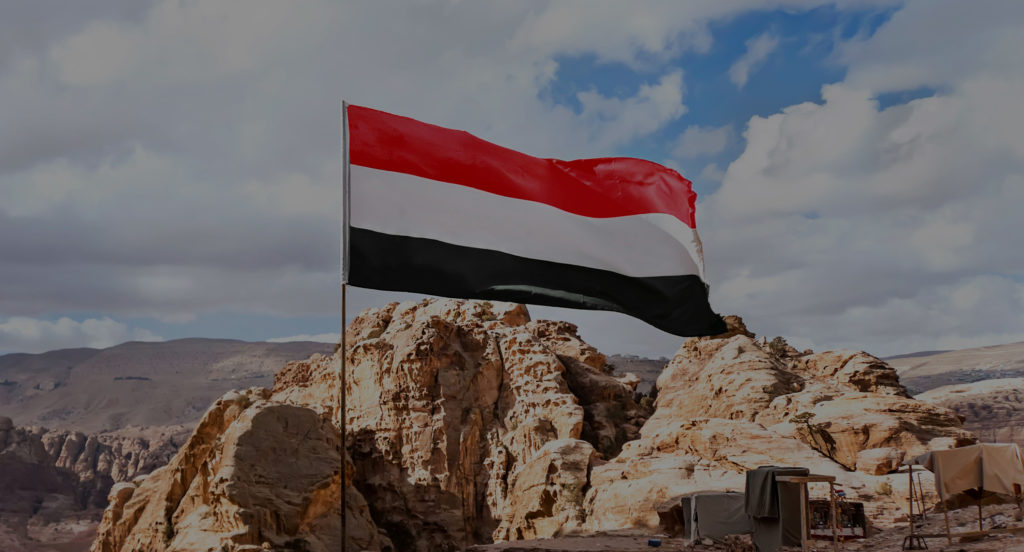
Current Situation of US and UK air strikes in Yemen
Intelligence cut off time 15:00 GMT 12th of January 2024
On the 11-12 January, US and UK aircraft and warships conducted at least 70 strikes on multiple military targets in Houthi-controlled Yemen. Reports indicate that over 100 precision guided munitions were fired on at least 16 Houthi locations. This includes a military base adjacent to Sanaa airport, a military site near Taiz airport, a Houthi naval base in Hodeidah and military sites in Hajjah governorate. Houthi’s stated that five of the group’s fighters were killed in the strikes with six others wounded.
The US Secretary of Defense, Lloyd J. Austin III, released a statement indicating that targeted strikes were conducted on sites associated with unmanned aerial vehicle’s (UAV), ballistic and cruise missiles, and coastal radar and air surveillance capabilities.
Majority of the firepower came from US jets, with the US having the aircraft carrier USS Dwight D Eisenhower already in the Red Sea, as well as air bases in the region. US Navy warships also fired Tomahawk land attack cruise missiles (LACMs), which are GPS-guided and can be programmed to fly evasively. The UK contributed by sending four RAF Typhoons from Akrotiri, Cyprus, carrying Paveway IV guided bombs.
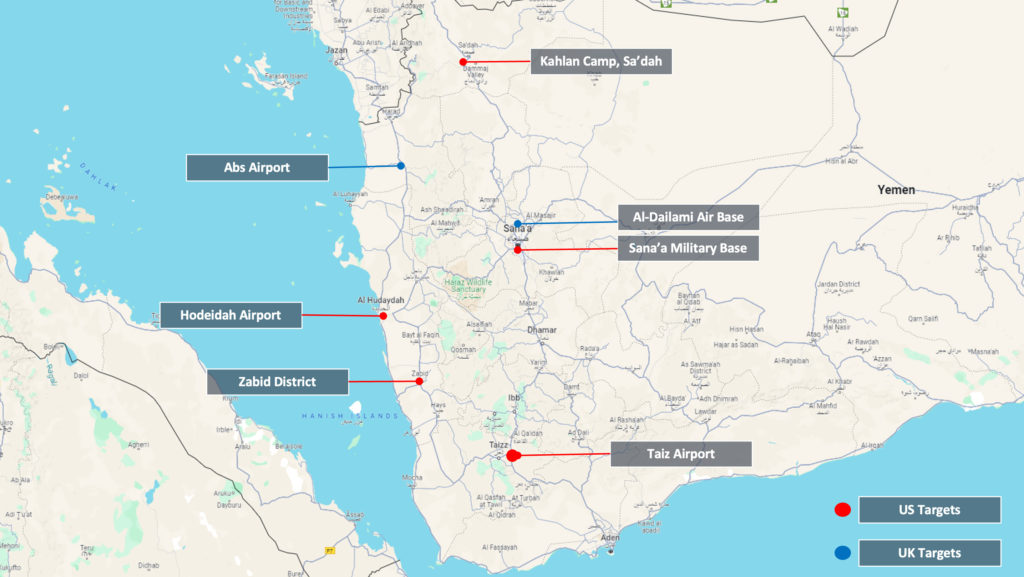
Houthi Response to UK and US Air Strikes in Yemen
In response, the Houthis have stated that they are not deterred by the attacks. The group’s leader, Mohammed al-Bukhaiti, stated that the US and UK would “soon realise” the action was “the greatest folly in their history”. Hezbollah, Hamas, and the Palestinian Islamic Jihad responded by saying that the strikes show Washington and London’s support for Tel Aviv and that the West are now responsible for the subsequent impact on the region’s security. Iran also responded forcefully, expressing that the strikes were a breach of international laws. Saudi Arabia and Jordan did not condemn the attacks but did call for restraint. Several Western nations supported the operation as an attempt to restore the free flow of trade and deter further Houthi attacks.
Who is Behind The Houthi Movement?
The Houthi Movement is an Iranian aligned group that controls much of Yemen after nearly a decade of civil war against a Western-backed and Saudi-led coalition. The two sides are currently observing a tentative ceasefire that officially ended in late 2022 but has remained in place to the current day.
Following the outbreak of the Hamas-Israel conflict, the Houthi’s emerged as a strong supporter of the Palestinian Islamist group. The Houthis began attacks on shipping between the Gulf of Aden and the Red Sea in December 2023, claiming to target vessels linked to Israeli persons, businesses, and interests.
However, this route, which links Europe and Asia and Africa via the Suez Canal, accounts for roughly 15 percent of the world’s shipping traffic. The attacks have forced some shipping companies to limit transits through the waterway, or even cease operations altogether, instead taking the longer route around southern Africa. This has significantly disrupted international commerce, increasing delivery costs and time, stoking fears about a global inflation.
US response to Houthi Attacks on 9th January 2024
In response to the Houthi attacks, the US launched Operation Prosperity Guardian alongside several allies, which aimed to end the blockade and counter all threats by Houthi forces against international maritime trade. The operation was defensive in nature, destroying only missiles launched at vessels with no pro-active strikes conducted. The Houthis continued to fire at merchant vessels, as well as allied naval vessels, dismissing warnings from Washington and London. Then on 9 January, US and British warships shot down 21 drones and missiles, repelling the largest Houthi attack so far.
How will UK and US airstrikes in Yemen affect global stability?
It is highly likely that the Houthi’s largest attack to date on 9 January was the trigger that surpassed the US-UK threshold. While international prices have yet to see a significant impact, Operation Prosperity Guardian was not working as a deterrent. It is highly likely that more extensive, continued Houthi action would force more merchant vessels away from the Red Sea, almost certainly disrupting maritime trade, therefore increasing consumer prices and shortages.
What course of action will the Houthi’s take to retaliate?
In the immediate aftermath, the Houthi’s are highly likely to increase their attacks on commercial and military vessels in the region in retaliation. However, it is likely that their ability to launch missiles and drones has been degraded. Should the Houthis sustain their attacks, it is almost certain that the US and UK will continue their strikes on targets within Yemen. It is also highly likely that the group will be re-designated as a terrorist organisation if they continue. This would have a significant impact on the peace process to end the Yemeni Civil War between the Houthi’s and the Saudi-led coalition, which has continued to progress despite regional tensions.
A breakdown of the process would almost certainly see a resumption of hostilities between the two sides, with locations within Saudi Arabia and the United Arab Emirates likely becoming viable targets for the Houthi’s as evidenced by their previous attacks.
Will the UK and US involvement spark conflict with the Middle East?
Across the Middle East, it is highly likely that Houthi’s allies and other Iranian proxies start to act in solidarity with the group. These groups will almost certainly view the attacks as Western support for Israel.
It is almost certain that Popular Mobilisation Forces (PMF) in Iraq and Syria will continue to target US military bases across the region. It is also likely that the frequency and scale of these attacks will increase considerably. There is a realistic possibility that US military locations that have not been targeted yet in Kuwait, Saudi Arabia, and the UAE, are targeted.
Hezbollah will likely continue to focus its attacks on Israel, however an attack on the US cannot be ruled out. While still unlikely, the US and UK strikes on Yemen have increased the likelihood of a wider conflict developing in the Middle East, as well as the West entering a proxy war with Iran. This eventuality would highly likely take focus away from the conflict in Gaza, almost certainly intensifying the humanitarian situation.
Travel Risk Advice
- Avoid all non-essential travel to Yemen.
- Anyone operating in the region should monitor events from a reliable source in case of a major escalation.
- Key military and political infrastructure inside Sana’a are very likely to remain focal points for violence and demonstrations. You should be particularly vigilant in these areas and follow any specific advice from the local security authorities.
- Avoid US and UK embassies or consulates across the region as these will likely be the epicentres for demonstrations.
- If air-raid or rocket warning sirens are sounded, seek secure shelter immediately, ideally in a purpose-built shelter. If in a building when sirens are sounded, head to a secure room, stairwell or inner room. Close all windows and doors, stay in shelter for ten minutes after the siren ends.
- If hostilities resume between the Houthis and the Saudi-led coalition, key civilian and military installations in Saudi Arabia and the UAE will likely become targets. Avoid these locations if not essential.
- Previous Houthi attacks have targeted major airports. Ensure alternative travel plans have been prepared for, as well as all individuals having comprehensive travel insurance.
- Mariners in the region should proceed with extreme caution, maintaining contact with port and shipping authorities at all times.
- Always follow all instructions and orders from security forces. Where possible, avoid areas of active conflict and remain inside a secure location away from windows.
- Ensure that you always carry personal identification documents. Consider making photocopies of important documents in case of confiscation, theft or loss.Keep these documents separated from the originals.
- Have emergency contact numbers saved on your phone. These should include the local authorities, medical facilities and any consular support. Ensure that mobile phones are charged in case of any losses in electricity.
- If caught in the vicinity of a security incident, seek shelter immediately and leave the area if safe to do so. Continue to adhere to all instructions issued by authorities and obey any security cordons in place.
- Monitor the Solace Secure platform and trusted local media for relevant updates.
More on the recent activity in the region
Houthi Attacks in the Red Sea
Since the start of the Israel-Hamas war, the Houthi Movement has supported the Palestinian cause by targeting southern Israel directly and Israeli-linked vessels on shipping routes in the Gulf of Aden, Red Sea, and the Bab-al-Mandeb.
Houthi Seizure of Merchant Vessel Galaxy Leader
In a brazen incident on 19 November, the Galaxy Leader, a Bahamian-flagged and Japanese-operated merchant vessel (IMO: 9237307), fell victim to suspected Houthi Movement militants in the Southern Red Sea.
Israel-Hamas War 2023
With the incursion into southern Israel by the Gaza-based militant group Hamas over the weekend of 7 and 8 October, this eventuality became a reality, and the region is now on the precipice of a protracted and deadly conflict.
Safegurd your journey with Solace Global
Security Services for Remote and High Risk Areas
We manage the full security lifecycle, from initial security strategy, protection on-the-ground and ongoing overwatch, with advanced risk management software to support compliance and reporting.

Solace Secure: Travel risk management software
Give your people peace of mind when they travel for work, so they remain focused on the job at hand. We mitigate risks, manage incidents if they occur, and support your people with security advice or help in a crisis. With Solace Secure you have everything you need to provide safe passage on a global scale.

Enhanced Monitoring in High-Risk or Remote Locations
An extra layer of security support can be added with our overwatch monitoring tool on Solace Secure. Our crisis response team support your travel policy protocols and keep eyes on travelling employees check in’s. Should anything go amiss, we can begin response procedures immediately.
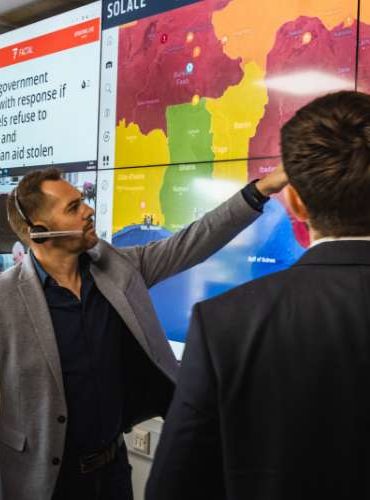
Speak to our team about your journey management needs
Solace Cyber Recognised as Assured Service Provider by National Cyber Security Centre.

Solace Cyber, a leading Cyber Security organisation with headquarters in Dorset, has achieved recognition as an Assured Service Provider under the prestigious Cyber Incident Response (Level 2) scheme by the National Cyber Security Centre (NCSC). This accolade positions Solace Cyber among the first in the UK to attain Incident Response accreditation through the scheme, highlighting their commitment to providing high-quality incident response services.
The NCSC’s Cyber Incident Response project aims to offer support to UK organisations that have fallen victim to cyber-attacks, by raising awareness of high-quality incident response providers who can offer external support and advice on how to manage and recover from cyber incidents.
The initiative builds on the Level 1 scheme, which was developed to assure companies that have the capability to provide incident response services to nationally significant organisations such as regulated industries, central government, and critical national infrastructure.

With an impressive track record, Solace Cyber has been instrumental in helping companies across the UK recover from ransomware attacks and data breaches. Serving as representatives for International Loss Adjusters and Cyber Insurance companies, Solace covers more than 30,000 commercial businesses nationwide, through our channels, providing hundreds of successful response recoveries.
Rowland Johnson, President of CREST said, “Congratulations to Solace for gaining NCSC Cyber Incident Response (Level 2) scheme Assured Service Provider status for its incident response services. This means Solace has been assessed as capable of supporting most organisations with common cyberattacks, such as ransomware. It provides valuable assurance to buyers of the high quality of Solace’s incident response services.”
This prestigious accreditation reaffirms Solace Cyber’s dedication to meeting the NCSC’s stringent standards for both technical and organisational capability. By achieving the Cyber Incident Response (Level 2) status, Solace Cyber continues to demonstrate its unwavering commitment to enhancing the cybersecurity landscape and providing unparalleled support to organisations facing the challenges of cyber threats.
For media inquiries, please contact: rbessant@solaceglobal.com
Incident Response Services
Complete a cyber risk assessment
We will test your security posture against the latest cyber threats.
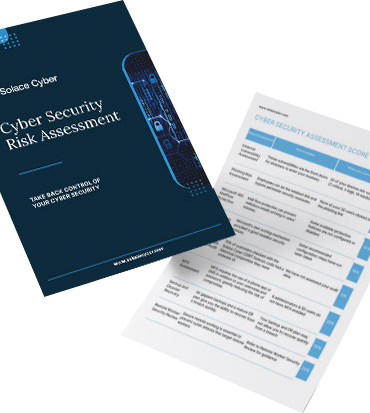
Request your incident response plan
You will receive a comprehensive report detailing the current IT cyber security posture of your estate as well as ongoing access to the Cyber Security Incident Response Team and the Realtime Risk Platform.

Access to Real-time Risk Platform
A comprehensive platform to consolidate all your cyber risk management.

Cloud XDR
Spot malicious activity and respond quickly, before material damage is done to your business.
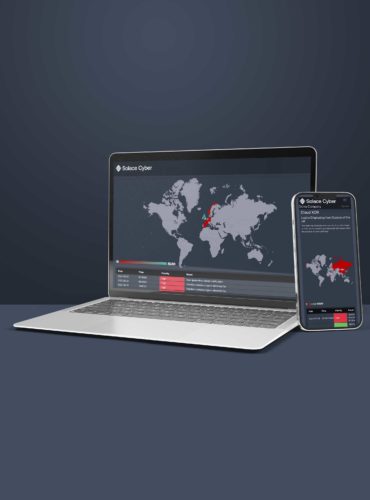
Managed Detection & Response
Mitigate cyber risk for all endpoints and servers with these critical components; advanced machine learning and AI.

Security in Dubai, UAE and COP28 Climate Change Summit
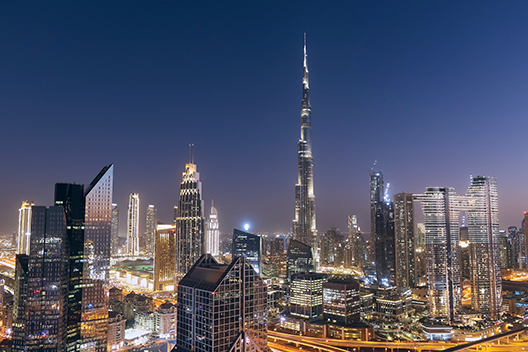
The United Nations Climate Change Summit, COP28 will be hosted in Dubai at the end of the month to bring together global leaders in an effort to take action against climate change.
The Middle East, with its vast energy resources, intricate alliances, and ongoing conflicts, plays a crucial role in the global energy landscape, and the consequences of regional conflicts and geopolitical dynamics in the area have far-reaching implications for the world’s environmental and sustainability goals.
However, in addition to the long-standing geopolitical tensions and conflicts, the Israel-Hamas war holds the potential to heighten tensions and detract from the success of this summit, with the likely possibility of an increasing security risk to Westerners travelling to Dubai.
In this article:
- Security factors during COP28 in Dubai
- Background on Houthi Movement in Yemen
- UAE’s involvement in the Yemen conflict
- Potential for further destabilisation triggered by the Israel-Hamas War?
- Potential outcomes for security in Dubai and UAE
Security factors during COP28 in Dubai
Many Israeli climate organisations have stated that they will boycott COP28 and it is highly likely that Israel will be forced to withdraw from COP28 entirely due to security concerns.
However, COP28 will still attract thousands of Westerners, including many world leaders, diplomats and influential businesspeople. It is likely that COP28 represents an attractive target for terrorist actors due to the influx of foreigners and the international publicity of the event.
On 29 October, the UK’s Foreign, Commonwealth & Development Office (FCDO) issued a warning for British tourists visiting the United Arab Emirates (UAE), indicating an increased threat of terrorist attacks. The advisory warns of a very likely risk of terrorist attacks, which could be indiscriminate and may target places frequented by foreigners. While terror attacks within the UAE and rare and the Emirati counter-terrorist forces are heavily financed and well-trained, there is a realistic possibility that forces will be overstretched as a result of COP28 and that self-radicalisation within the region will increase as a result of the situation in the Gaza Strip.
Background on Houthi Movement in Yemen
In 2004, the Iranian-backed Houthi Movement, otherwise known as Ansar Allah (Supporters of God), rebelled against the Yemeni government with the aspiration of taking control over the entirety of Yemen. The conflict escalated in 2014 when Houthi forces seized Yemen’s capital, Sanna, and forced the Yemeni government into exile. This led to the deployment of a Saudi-led coalition in 2015 that seeks to establish full territorial control by the internationally recognised government within Yemen.
The Saudi-led coalition consists of predominantly Sunni and Arab nations such as the UAE, and is backed by Western powers including the USA, UK and France.
UAE’s involvement in the Yemen conflict
The UAE’s involvement in the coalition has involved a range of military and logistical support for the government of Yemen, including air strikes, the deployment of troops to Yemen and training local Yemeni militias allied to government forces.
The UAE’s involvement in the conflict has made it a target for Houthi forces who have developed an arsenal of long-range drones and missiles facilitated by Iran. Houthi forces have conducted numerous drone and missile attacks on the UAE, typically targeting strategic locations in Abu Dhabi and Dubai, such as airports, ports and oil facilities.
Since 2019, the UAE has significantly reduced its military footprint in Yemen, however it still projects power through its support of a number of militias allied to Yemeni government forces. The Houthis have conducted attacks on the UAE in response to successful military operations by pro-government militias supported by Abu Dhabi, which resulted in a series of high-profile attacks in 2022 against high-profile targets in Abu Dhabi and Dubai.
While the UAE maintains a sophisticated air-defence capability and has been able to shoot down the majority of projectiles within its airspace, it is likely that the Houthis have sufficient drones and missiles to overwhelm and penetrate UAE air defence.
The Houthi Movement have currently been in talks with Saudi Arabia and other local actors regarding a ceasefire.
Potential for further destabilisation triggered by the Israel-Hamas War?
There is a realistic possibility that the Israel-Hamas war destabilises the Middle East, and Iran exploits the situation to order its proxy forces to attack Israeli, Western and anti-Iranian forces and interests throughout the region.
Houthi forces have attempted drone and missile attacks on Israel in response to the Israel Defence Forces (IDF) military activity in the Gaza Strip, with all attacks to date intercepted by IDF or US air defence.
There is a realistic possibility that both Saudi and the UAE will be forced to respond to Houthi attacks which will invariably provoke retaliatory attacks from the Houthis. Moreover, there is also a realistic possibility that the Houthi rebels might seek to exploit the current situation in the Middle East to conduct attacks on the UAE.
In the event of a wider conflict involving Israel, the Houthi rebels could exploit regional tensions to launch missile and drone attacks, engage in cyber warfare, and employ asymmetric tactics against the UAE, aiming to distract or pressure the UAE due to its involvement in regional security initiatives and the Saudi-led coalition.
A further motivation for the Houthis, who are backed by Iran and reportedly allied to Hezbollah, would be to present themselves as defenders of the Palestinian cause and target the UAE for its recent normalisation of relations with Israel and ties to the West.
Potential outcomes for security in Dubai and UAE
If the Israel-Hamas conflict is not contained and provokes a US retaliation, the Supreme Leader of the Houthi Movement has issued a statement declaring that they will respond with drones and missiles, and with the Al Dhafra Air Base located just to the south of Abu Dhabi, it is highly likely that Houthi forces will attempt to target the US military and US interests within the UAE.
For those travelling on business to UAE or will be attending COP28, Solace Global Risk facilitate safer travel for corporate travellers, executives and private clients, with travel risk assessments and end-to-end secure journey management.
Security solutions include intelligence and advisory, latest security alerts through Solace Secure, security trained drivers and airport meet and greet.
Our Journey Risk Management Solutions
Speak to our team about your journey management needs
Israel’s Military Strategy and Biden’s Visit
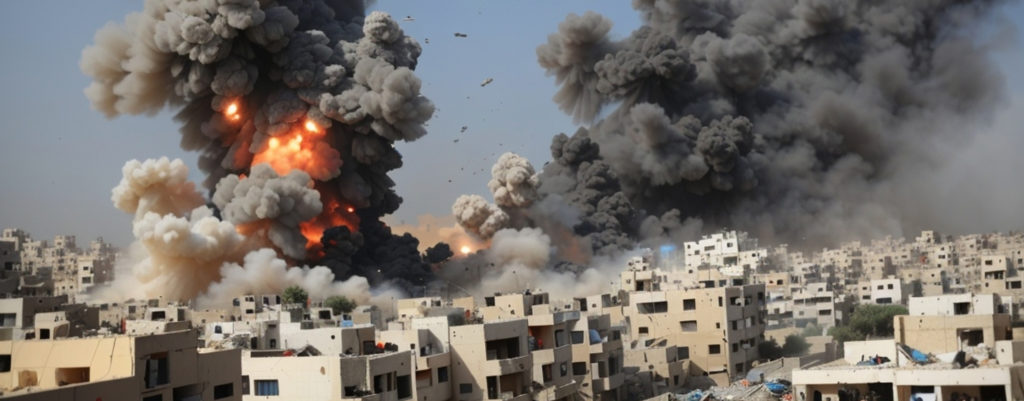
Current Assessment of Israel Hamas Conflict
Intelligence cut-off time 11:00 GMT 17th of October 2023
Whilst it remains almost certain that the Israeli Defence Forces (IDF) will commit to a ground offensive in the Gaza Strip, this is unlikely to occur within the next 24-48 hours.
The main factor contributing to the postponement is the recent revelation of President Biden’s visit to Israel for discussions with Israeli Prime Minister Benjamin Netanyahu on Wednesday 18 October. It is highly unlikely that the US will sponsor an IDF invasion while President Biden is within Israel due to the threat associated with Hezbollah retaliation from Lebanon, which will almost certainly be backed by the Iranian regime, or from one of the other militant groups operating out of the West Bank. It is estimated that Hezbollah alone has amassed a stock of over 150,000 rockets. While most of these rockets are crude and unguided munitions that range out only to 10-40km, Hezbollah also maintain a stock of more sophisticated Iranian-derived rocket and missile systems such as the Fateh-110 (250-300km), SCUD-B/C/D (300-550km) and the Zelzal 1/2 ballistic missiles (125-250km). Such weapon systems enable Hezbollah to target high-value targets such as Ben Gurion airport with a high degree of accuracy. While it is expected that Israel’s Iron Dome air defence system will detect and intercept the majority of rockets, there is a realistic possibility that Hezbollah could launch missile and rocket salvos large enough to overwhelm the air defence system.
Given the missile and rocket threat posed by Hezbollah and the fact Hamas have now likely fired the majority of their rockets, there is a realistic possibility that the IDF will be forced to reposition mobile elements of its Iron Dome system to counter the emerging threat in the north.
Iran’s Involvement with Israel Hamas Conflict
Iran has warned that its proxy forces will conduct “pre-emptive action” in response to Israel’s retaliatory strikes on Gaza, which will invariably include the use of Hezbollah forces. However, it is unlikely that Hezbollah will conduct any major attacks with President Biden in Israel for fear of a major US retaliation.
Moreover, it is more likely that Hezbollah and Iran will wait until Israel commits forces to Gaza as the IDF will have a considerable amount of its forces fixed in the south, offering a tactically advantageous position to open up a northern front that will almost certainly stretch IDF forces and complicate Israeli re-supply and sustainment. To counter Iran and its proxies’ threats, the US has moved its USS Gerald Ford led Carrier Strike Group (CSG) 12 into the Eastern Mediterranean and has deployed a second CSG led by the USS Eisenhower to the Mediterranean which is currently in the eastern Atlantic and is expected to enter the eastern Mediterranean in the next couple of days. The combined combat power of two US CSGs will provide Israel with overwhelming air superiority should the US enter into a conflict with Israel, with warnings already issued to Iran that the US will engage Iranian proxy forces. It is highly likely that Israel will delay a ground offensive until the USS Eisenhower is positioned in the eastern Mediterranean.
Expectations for Biden’s Visit to Israel
It is expected that Biden will discuss with Netanyahu the evacuation of civilians from the Gaza Strip through the Rafah crossing with Egypt. It is likely that Biden will demand that a humanitarian corridor is established before IDF forces enter Gaza, with Biden also forecasted to visit Egypt where he will likely use diplomatic pressure to demand the same from Egypt. It is likely that the IDF will want to commit forces sooner rather than later as any delay will afford Hamas and other militants to prepare defensive positions and mobilise forces. However, Israel is hugely dependent on US military aid which currently stands at approximately USD 4 billion per annum. It is unlikely that Israel has weapon stocks high enough to sustain military operations whilst maintaining enough weaponry to counter Hezbollah or deal with a wider conflict. Therefore, it is likely that Israel will have to submit to US requests in order to guarantee the delivery of future military aid and will not commit to a ground offensive until Biden has some reassurances from Tel Aviv.
Alternative Analysis
Hezbollah, under orders from Iran will launch a pre-emptive attack on Israel prior to the arrival of President Biden. Such a move will provoke Israel into retaliating and committing to a ground offensive in Gaza before the Rafah crossing is opened and civilians are evacuated, causing an acute humanitarian crisis. This will undoubtedly provoke much international condemnation, resulting in anti-Israeli protests and rhetoric and potentially force the West to temper its support of Israel.
Solace Global Security Within Israel
Whether you are considering an evacuation or seeking to continue operations while ensuring the safety of your team, we are here to assist.
For those seeking a secure exit from Israel, Solace Global offers comprehensive journey management services:
- Private Charter Flights: Flight options are available to various destinations across Europe.
- Secure Ground Transportation: Secure movement within Israel, ensuring access to open land borders and maritime evacuation points.
- Armed or unarmed English-speaking security-trained drivers, Close Protection Officers (CPOs), and discreet, low-profile vehicles at your disposal.
Military Coup in Gabon August 2023
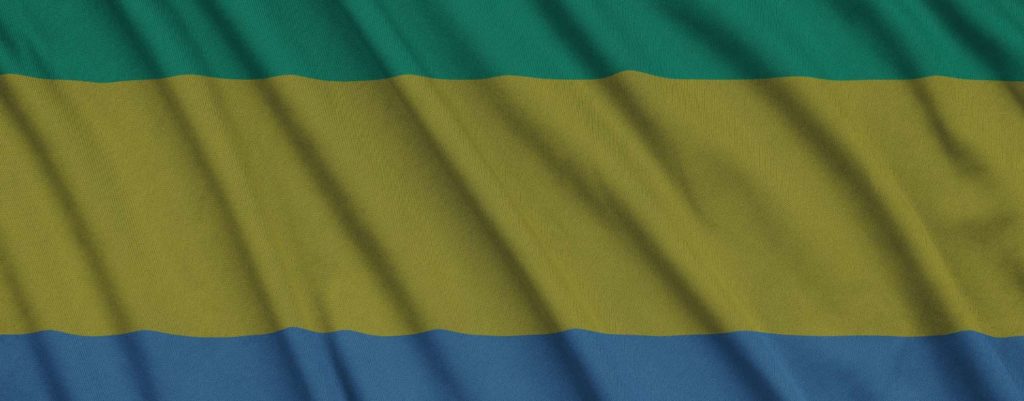
Summary of Military Coup in Gabon
In the early hours of 30 August, the Gabonese Election Centre (CGE) announced that President Ali Bongo had won a third term in office, having received 64.27 percent vote share in Saturday’s general election. However, just after 05:00 local time, a group of senior officers from the Gabonese military announced on television channel, Gabon 24, that they had seized power with the full support of the Gabonese security and defence forces.
Introducing themselves as members of The Committee of Transition and the Restoration of Institutions, the officials stated that the election results were cancelled, all borders were closed until further notice and state institutions – the government, the senate, the national assembly, the constitutional court and the election body – were dissolved.
Following the announcement, domestic and regional sources reported gunfire could be heard in the capital Libreville. However, as the day progressed, the streets appeared calm, and crowds of citizens peacefully took to the streets. Videos circulating on social media showed multiple instances of people celebrating and cheering, often in close proximity to the country’s armed forces. So far, there has been no signs of widespread protest or alarm. Several hours after the officers’ announcement, internet access also appeared to be restored for the first time since Saturday’s vote.
The Gabonese government has yet to make an official statement, with President Bongo reportedly under house arrest, surrounded by his family and doctors.
Potential for Political Unrest in Gabon
Ahead of the coup, there was significant concern over potential unrest following Saturday’s presidential, parliamentary and legislative elections that the opposition alleged were plagued by fraud. Questions over the election’s transparency were re-enforced by the lack of international observers, the suspension of foreign media broadcasts, the decision to cut internet service, and the imposing of a nationwide curfew.
President Ali Bongo and his father, Omar Bongo, have ruled Gabon since 1967, but frustrations with the political dynasty had been growing for several years ahead of Saturday’s election. The Central African nation is a major oil producer, so much so that it is a member of OPEC, as well as being a major exporter of uranium and magnesium. Indeed, the country is home to over one-quarter of the world’s proven magnesium reserves. However, Bongo has done little to channel its oil and other wealth towards the population of some 2.3 million people, a third of whom live in poverty.
This is also not the first attempt in recent history to overthrow Bongo as in January 2019 he and the Gabonese government were able to foil an attempted military coup after soldiers briefly seized the state radio station and broadcasted a message saying Bongo, who had suffered a stroke months earlier, was no longer fit for office.
Find further analysis on political instability in West Africa
Situation Analysis by Solace Global
The strength of Gabon’s extractive-based economy means that it is Africa’s third most wealthy country by GDP per capita. However, with large swathes of the country still living in poverty, it is highly likely that the state has failed to transfer much of this wealth to ordinary citizens. It is likely that economic disparities have been one of the major triggers for the coup. This is likely supported by the lack of public resistance and the fact that celebrations have been seen on the streets of Libreville and other major population centres across the country.
Furthermore, the coup has yet to be characterised by anti-French rhetoric in a similar vein to the recent West and Central African coups in countries like Niger and Mali. However, the coup is almost certainly another problem for Paris in Africa, with multiple French companies operating in the country. Unlike the other coups in Africa, it is doubtful that the Gabonese coup leaders will seek Russian support in favour of maintaining Western relations. Gabon has traditionally had weak ties with Russia and unlike much of Africa, has not been threatened with major insurgencies and security issues. Moreover, Gabon was one of the countries in Africa that voted against Russia at the United Nations in the 2022 resolution on Ukraine.
Economically, the coup is almost certainly going to lead to price volatility in global oil and magnesium markets. Gabon has strong economic links with both France, and increasingly with China, and it is a major exporter of commodities to these nations. Reports indicate that some foreign companies like the French mining company, Eramet, have already suspended operations in Gabon in response to the coup. It is therefore highly likely that both France and China will be looking for the political situation to be resolved quickly, and there is a realistic possibility of diplomatic involvement from both Paris and Beijing.
In the immediate future, it is unlikely that any major protests or armed clashes will break out as the Gabonese security forces are seemingly onside, and most indications suggest the public is too. The turning on of the internet was likely a move to win over the public as well as signal a different approach to governance than the Bongo regime. However, this also presents an increased potential for demonstrations and protests, both in favour and against the coup, to occur as information is spread on social media. There is a realistic possibility of sustained demonstrations which will likely lead to disruption in major population hubs. Borders will likely remain closed for upcoming days, but if scenes remain calm, borders are likely to reopen quicker than seen in Niger and Mali.
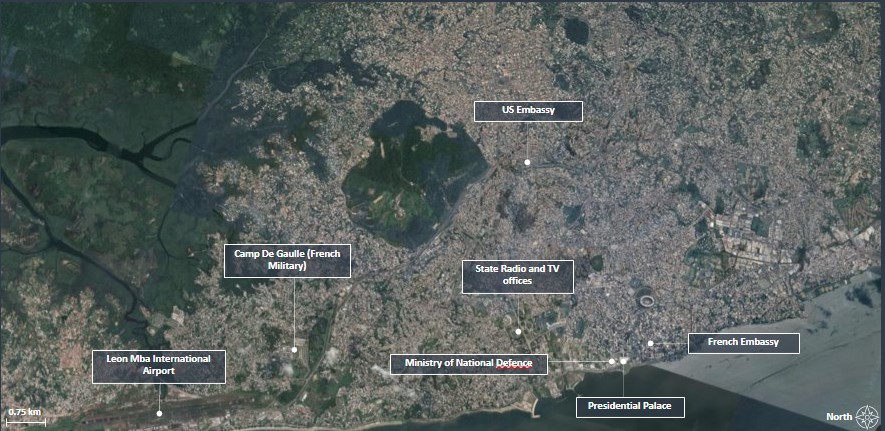
Advice for travellers affected in Gabon
- Although the coup appears to be relatively peaceful, widespread unrest and violence could ignite at any time. Travellers should avoid all ongoing military activity and any large public gatherings as the security situation may deteriorate quickly and without warning.
- In the event of significant security development, travellers in Gabon should follow any instructions issued by the government or military authorities. If a curfew is declared it is vital to abide by the curfew rules to avoid any conflicts with security forces.
- If violence escalates inside the capital, consider departing from Libreville whilst commercial options are still available.
- Key military and political infrastructure inside the capital are very likely to remain focal points for violence and demonstrations. You should be particularly vigilant in these areas and follow any specific advice from the local security authorities.
- Expect significant travel disruption and an enhanced security force posture inside Libreville in the short-term. Should any opposition movement to the coup materialise, it is likely that flights will be suspended, and roadblocks or vehicle checkpoints will be established.
- Always follow all instructions and orders from security forces. Where possible, avoid areas of active conflict and remain inside a secure location away from windows.
- Ensure that you always carry personal identification documents. Consider making photocopies of important documents in case of confiscation, theft or loss and keep these documents separated from the originals.
- Emergency services may be unable to support you in the short-term. Be aware of what consular support may be available to you in-country. Many countries do not provide direct consular support in Gabon. The UK’s consular services for Gabon are based in Yaoundé, Cameroon.
- Have emergency contact numbers saved on your phone. These should include the local authorities, medical facilities and any consular support. Ensure that mobile phones are charged in case of any losses in electricity.
- If caught in the vicinity of a security incident, seek shelter immediately and leave the area if safe to do so. Continue to adhere to all instructions issued by authorities and obey any security cordons in place.
- Monitor the Solace Secure platform and trusted local media for updates relevant to the coup.
Stay ahead of global events with free weekly intelligence

Attempted coup in Niger July 2023
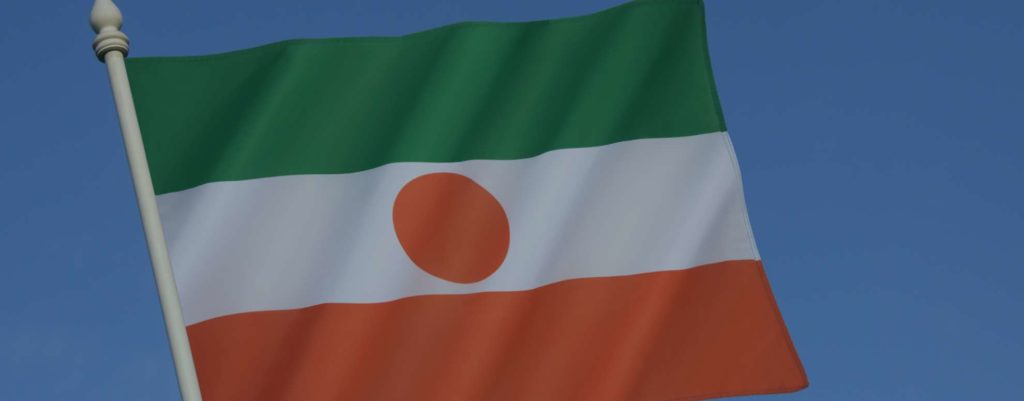
Summary of Attempted Coup in Niger
On the morning of 26 July, multiple domestic and regional sources reported that a potential coup was underway in Niamey, Niger. Early indications suggested that the Presidential Guard had blocked the entrance to the Presidential Palace, and detained President Mohamed Bazoum. Concurrently, government ministries next to the palace were blockaded, with those inside, including the Minister of the Interior, detained.
By early afternoon, the Niger Armed Forces (FAN) and National Guard had both deployed in the vicinity of the Presidential Palace. The FAN and the Presidential office both released statements asserting that the ongoing coup attempt was being driven by “anti-republican” elements and gave the Presidential Guard an “ultimatum” to stand down and release President Bazoum, or face being attacked. Unverified social media reports have subsequently described armoured FAN columns entering Niamey. Further unverified reports later emerged of roadblocks appearing across the city.
The conditions in Niamey remained calm initially, however, as the situation developed businesses were reputedly told to close and residents were ordered to stay at home. Operations at Diori Hamani International Airport currently remain unaffected, with flight tracking data showing that both inbound and outbound flights were operating as normal.
Recent Instability in Western Africa
Since 2020, several coups have taken place across the Sahel region, most notably in neighbouring Mali and Burkina Faso. The key driver for instability has been the inability of central governments to guarantee internal security from a myriad of insurgencies and terrorist actors. Niger has been increasingly afflicted by the instability affecting the wider region. In the southeast, Niger is battling incursions from Boko Haram and in the west of the country, the government is attempting to contain threats from Islamic State’s Sahel Province.
Due to the external and internal threats posed by these actors, Niger has become a major operating base for Western nations in the region. Indeed, both France and the USA utilise the country as a base for operations in the wider Sahel.
This relationship has grown in significance for Western governments as relations with other states in the region, such as Mali and Burkina Faso, have broken down in the wake of their own respective coups, leading to the expulsion of French forces.
Further strengthening this relationship is the fact that Niger’s President was democratically elected in 2021 and is one of the region’s few remaining democratically elected heads of state. However, in February 2023 protests erupted in the capital, Niamey, with demonstrators expressing their dissatisfaction with a sustained French military presence in the country, with many believing that the foreign presence was either ineffective or had exacerbated security concerns.
Find further analysis on political instability in West Africa
Situation Analysis by Solace Global
At the time of writing, there has been no official statement from Presidential Guard. However, given the recent regional trends, it is highly likely that this attempted coup has transpired due to concerns regarding the deteriorating security of Niger.
This is further evidenced by the fact that the Presidential Guard has also apprehended the Minister of the Interior, who is the person ultimately responsible for policing and internal security in Niger. The recent uptick in attacks near the borders with Burkina Faso and Mali likely provided the catalyst for the current situation.
As the situation develops, it is almost certain that key transport routes and critical locations across Niamey will be seized by rival forces. This will include Niamey’s key river crossings, which connect the main part of the city on the eastern bank of the Niger River to its western parts, the international airport, and state TV and radio offices. At the time of writing, it is believed that President Mohamed Bazoum remains in detention.
The success of the ongoing attempted coup remains to be seen. Initial signs suggest that the FAN and National Guard have remained loyal to President Bazoum and are willing to fight. If this remains the case, it is unlikely that the coup succeeds due to the disparity in military firepower between the two sides. This result would ultimately see the Presidential Guard purged.
However, should the coup succeed, civil unrest, both in favour and against, will highly likely occur. A transitional military council will likely take over the government and immediately revise the stationing of foreign militaries in Niger. The removal of the last remaining Western forces in the region will likely create a security vacuum, that will almost certainly benefit the insurgencies and terrorist groups in Niger and the wider region.
Stay ahead of global events with free weekly intelligence

Alert Plus: Multiple Large Earthquakes Strike Southern Turkey

Situation Summary: Large Earthquakes in Southern Turkey
At 01:17 (UTC) on 6 February, a magnitude 7.8 earthquake was detected 30km west-northwest of Gaziantep, Turkey (37°10’26.4″N 37°01’55.2″E). The earthquake struck at a depth of 24.1km and it quickly became apparent that a significant amount of casualties and damage had occurred in Turkey and northern Syria. There have been several substantial aftershocks, eight of which recorded a magnitude of at least 5. Tremors have also been felt in Greece, Cyprus and Lebanon.
As of 10:00, at least 1200 fatalities had been confirmed across Turkey and Syria. Images and videos posted to social media and local news outlets indicate considerable damage to infrastructure. In Turkey alone, at least 2818 buildings have collapsed. At 10:24, the region was then struck again by a separate 7.5 magnitude earthquake 4km south-southeast of Ekinozu (37°10’26.4″N 37°01’55.2″E) – roughly 128km north of the earlier epicentre. At the time of writing, it has been reported that the region has experienced at least 100 aftershocks.
According to the United States Geological Survey (USGS), the area in which the quakes have hit is populated predominately by non-earthquake-resistant residential structures. They are often made of masonry, brick, and non-reinforced concrete frames. As a result, many buildings will have been badly damaged or will have collapsed completely. This means that there will be few places in which survivors can shelter safely.
Turkey declared a ‘Level 4 Alarm’ after the initial tremor, which reportedly includes a call for international assistance and support. The European Union has agreed to send rescue teams and is preparing further help for Turkey. US officials are also monitoring the situation and have noted their willingness to help. Rescue teams from India, Russia and Taiwan have also deployed.
President Recep Tayyip Erdogan has described events so far as the nation’s worst disaster since the 1939 Erzincan earthquake, a 7.8 magnitude earthquake that killed over 32,000.
Intelligence Analysis by Solace Global
The earthquakes have struck as Turkey prepares for its May elections, which were already seen as some of the country’s most consequential in decades. These earthquakes further add electoral weight, since previous large earthquakes have led to major political changes in the country. In the wake of Turkey’s last major earthquakes, in 1999, voters turned away the incumbent parties in the 2002 elections. These parties were punished as a result of the poor relief and reconstruction efforts, and for the large-scale corruption the earthquake exposed. Recep Tayyip Erdogan and his newly formed Justice and Development Party (AKP) party were the major beneficiaries of this political shift. As a result, he became Prime Minster in 2003 and ascended to the Presidency in 2014, a post he currently still holds.
The province of Gaziantep, where the epicentre of the earlier earthquake is located, has long been a cradle of support for the AKP and Erdogan. Indeed, support for the AKP and Erdogan has remained high in the province despite the recent economic volatility and uncertainty in the country, and the persistent accusations of corruption levied against the AKP and President Erdogan. Consequently, comprehensive aid and reconstruction efforts are likely to be implemented swiftly. Despite this, contemporary Turkish political history suggests that the AKP, having been the beneficiaries of the 1999 earthquake, may be victims of these ones. This becomes increasingly possible if victims feel that aid is too slow, not sufficient, or that reconstruction efforts are corrupt.
Northern Syria has also been badly affected by the disaster. This part of the country has seen several recent Turkish military incursions; it is also home to some of the last anti-government areas of control. The tremors are almost certain to mean that Turkish offensive military operations in the region are temporarily halted, as the military is redeployed to support disaster relief and search and rescue operations in Turkey. The Syrian government may also seek to fast-track search and rescue and reconstruction efforts in areas in the region it controls in a bid to try and win support across an area which was long a stronghold of anti-Assad movements.
Those with interests in the region are advised to note that there remains considerable potential for large-magnitude aftershocks or follow-on tremors.
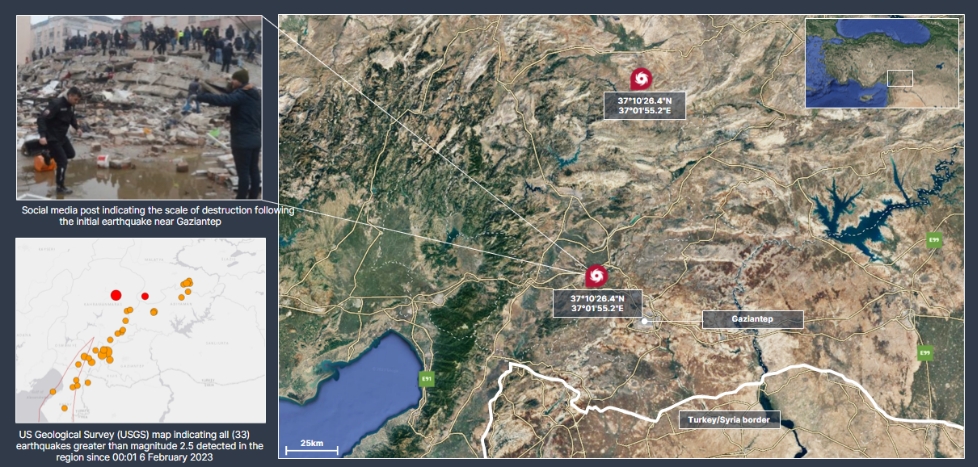
Advice if Affected by Earthquakes in Turkey
- Individuals with planned travel to Turkey or Syria are advised to reconfirm itineraries and expect considerable localised travel disruption, particularly in the vicinity of the Turkey/Syria international border
- Be aware that flights into and out of regional airports may be disrupted, impacting downstream travel plans
- Travellers are advised to avoid the immediate vicinity of all damaged infrastructure and ongoing emergency services operations
- Be aware that large aftershocks or additional earthquakes have a realistic possibility of occurring in the coming hours
- If caught in an earthquake, it is advisable to ‘Drop, Cover, and Hold On’ to reduce the risk of injuries, ensuring to cover the head and neck
- Following an earthquake, there can be serious hazards, such as damaged buildings, leaking gas and water pipes, and downed power lines
- If caught outside during earthquakes, exit vehicles and remain clear of overhead powerlines, bridges, or large structures
- If earthquakes occur during travel within coastal regions, be alert to the possibility of tsunami and consider heading towards high-ground once the initial tremors have passed
- Anticipate disruption to essential services, including water and electricity, WiFi or GSM/cellular network coverage, in addition to considerable pressure on local healthcare services
- Adhere to all instructions issued by emergency services or local government/security officials
- Monitor the Solace Secure platform and trusted local media for updates
Risk Management for NGO’s in Turkey and Syria
Alert Plus: Jerusalem Explosions
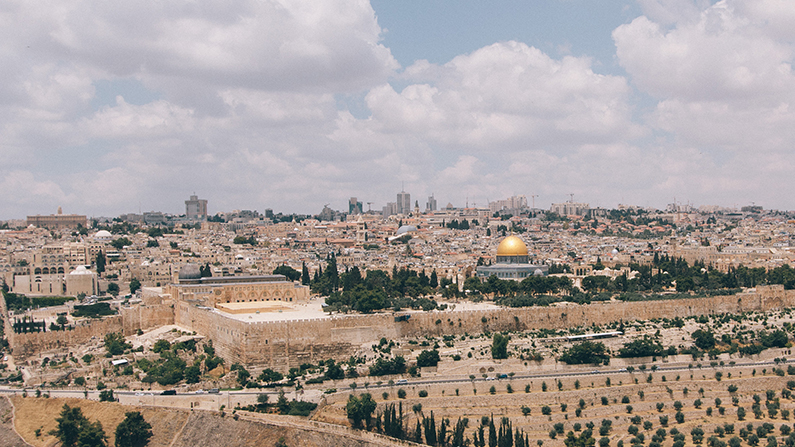
Situation Summary
On 23 November at around 07:00 to 07:30 local time, two explosions impacted the city of Jerusalem. Both explosions occurred at bus stops located in the Givat Shaul (stop ID: 647) and Ramot Junction (stop ID: 4009) entrances to the city. The geolocated site of the Givat Shaul explosion is situated less than 2km from the Knesset and Supreme Court, whilst the Ramot Junction explosion occurred close to the Ramot Alon Jewish settlement.
At least one person was killed and 17 people were injured during the first explosion at Givat Shaul, whilst the second explosion at the Ramot Junction injured a further five people and damaged a public bus located in the area. The Shaare Zedek Medical Center and Hadassah Mount Scopus Medical Center received injured persons from the twin explosions. The individual killed in the combined blasts has been identified as Aryeh Schopek, a 16-year-old Canadian citizen who lived in the Har Nof neighborhood of Jerusalem and attended a local yeshiva.
Initial reports indicate that two improvised explosive devices (IEDs) concealed in bags were responsible for the explosions. Both bags were left at bus stops during the busy hour of the early morning commute. Israeli police later confirmed that the explosions were being treated as a suspected combined terror attack conducted by a “Palestinian” individual or organisation. No independent verification of the claim of suspected Palestinian responsibility for the attack was immediately identifiable.
Police Commissioner Kobi Shabtai confirmed that an investigation into the attack was underway and did not rule out the possibility of multiple suspects. New anti- terror measures were also announced in the aftermath of the attack, including the deployment of police officers with sniffer dogs to all buses in Jerusalem to search for any as-of-yet undiscovered IEDs. Road closures have also been implemented, including a suspension of incoming traffic along Highway One which connects Jerusalem and Tel Aviv.
Outgoing Prime Minister Yair Lapid organised a national security meeting in Tel Aviv at 12:00 local time in response to the attack. Benjamin Netanyahu, the former and incoming prime minister, called for a “strengthening [of] the hands of the security forces” engaged in front-line anti-terror operations in the aftermath of the attack.
Solace Global Comment
Attacks on civilian infrastructure occur with some frequency in Israel, and buses have been targeted on multiple occasions over the past three decades. In 2022 alone, multiple terror attacks have occurred in Israeli territory, such as a mass shooting at a bus stop in Hadera in March, a mass stabbing and vehicle-ramming attack in Beersheba in March, a mass shooting in the Bnei Brak district of Tel Aviv in March, and a mass stabbing in El’ad in May. Palestinian and Islamist terror groups are often attributed with responsibility for many of these attacks, even when there is no official claim.
Though no group or organisation has claimed responsibility for the combined attack in Jerusalem, public attention has turned to Hamas. Mohammad Hamada, a Hamas spokesperson, issued a statement claiming that the “coming days will be intense and more difficult for the enemy” and that “the time has come for the creation of cells that are spread all over Palestine”. The discovery of an IED at the light rail tracks near the Jerusalem Central Bus Station during the evening hours of 22 November has raised concerns that the twin bomb blasts may have originally been intended as a triple, or even larger, attack. Further attacks remain likely in the short term.
At the time of writing, police reports indicate that the IEDs used by those responsible for the combined attack were packed with nails and likely remotely detonated. This method increases lethality despite the likely low-yield of the IEDs themselves, impacting civilians and surrounding infrastructure with metallic shrapnel. Security forces are certain to engage in an extensive investigation into the attack, and Israel Defence Forces (IDF) incursions into both Gaza and the West Bank are almost certain to occur in the short- term as Israeli authorities seek retribution for the terrorist incident. The explosions came as Netanyahu finalizes agreements with allies to form a new right- wing government that is set to include members of religious and far-right parties. Itamar Ben-Gvir, the head of the Otzma Yehudit political party and Netanyahu’s pick to be the next Minister of Public Security, visited the scene of the first attack and endorsed an aggressive response, calling for the government to “lay siege” to the culprits “even if it’s in the West Bank”. Ben-Gvir’s comments also endorsed house-to-house searches to locate those responsible for the attack with the intention of restoring the “deterrence power” of the Israeli government.
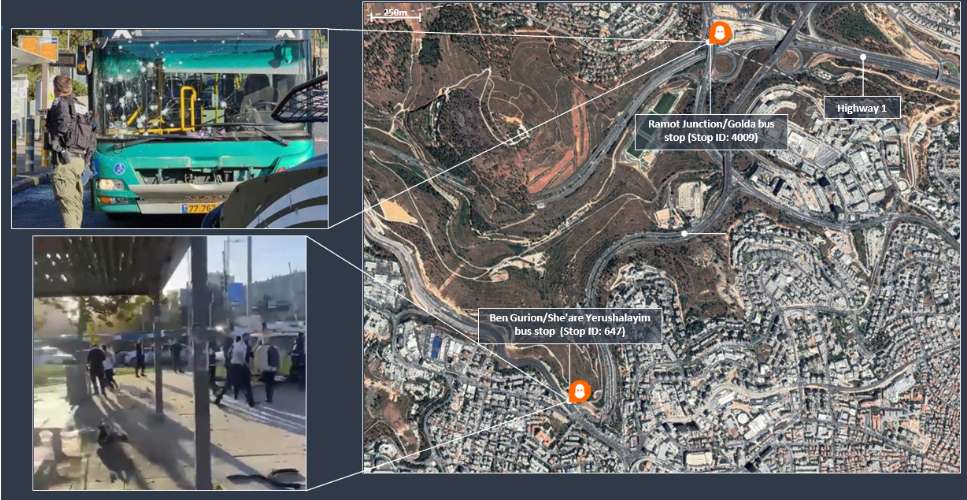
Solace Global Advice
- In the event of a terrorist attack those in the area are reminded to RUN – HIDE – TELL – FIGHT
- Israel has a high risk of terrorism. Further attacks remain likely in the short term, although the presence of additional security force personnel in Jerusalem will likely mitigate the risk of follow-on attacks in the immediate term
- Individuals with planned travel to Jerusalem are advised to reconfirm itineraries and expect localised travel disruption, particularly in the immediate vicinity of the incidents
- Travellers are advised to avoid the immediate vicinity of Givat Shaul and Ramot Junction as emergency services remain on the scene to conduct their investigations
- Further terror attacks in Jerusalem are likely to be indiscriminate, using explosives, bladed weapons, vehicles, and firearms to target crowded areas, government or security force installations and personnel, civilians, transportation networks, the Old City, and other high-profile locations including sites of religious significance
- Locations where large groups of residents or tourists are known to gather are at higher risk of attack. You should be particularly vigilant in these areas and follow any specific advice or guidance from the local authorities or security personnel
- Exercise increased caution, remain vigilant, be aware of your surroundings and report any suspicious activity or items to security personnel as soon as possible
- If caught in the vicinity of a security incident, seek immediate hard cover from any incoming gunfire or explosions and leave the area if safe to do so. Continue to adhere to all instructions issued by authorities and obey any security cordons in place
- Monitor the Solace Secure platform and trusted local media for updates
Alert Plus: Istanbul Explosion
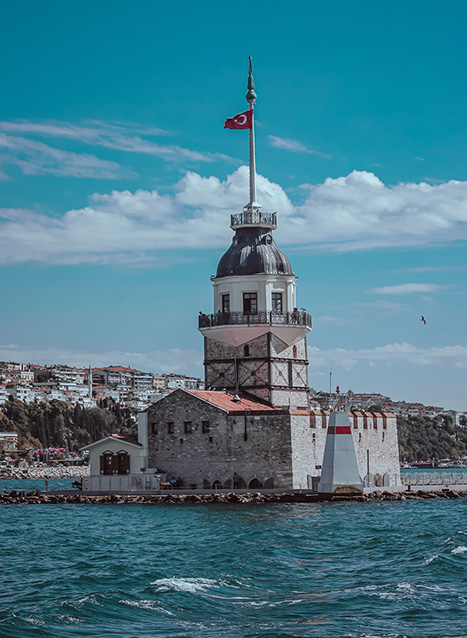
Situation Summary
On 13 November, at around 16:20 local time, an explosion occurred on Istiklal Caddesi in Istanbul. The street is mostly pedestrianised and is frequented by large numbers of both residents and tourists.
Available footage from the attack indicates that an explosive device was placed in a bag and then left on a bench in proximity to a Mango clothing store. Authorities believe the bag was left by a female suspect, who sat on the bench for around 40 minutes before walking away immediately prior to the explosion. Local authorities have also suggested that a nail bomb was used in the attack, which was designed to inflict mass-casualties.
As of 14 November, six deaths have been confirmed with a further 81 injured in the attack. Of those injured, 50 have been discharged from hospital, whilst the remainder are still being treated. Although Istiklal Caddesi has now reopened, having been closed in the immediate aftermath of the attack, there is an extensive police and security force presence in the area.
Turkish authorities announced on 14 November that a Syrian female suspect and a further 46 other individuals had been arrested following security raids at 21 different locations. Authorities have announced their belief that the perpetrator was a Syrian national, Ahlam Albahsir, who was trained as an intelligence officer by the Kurdistan Workers Party (PKK) and the People Defence Units (YPG). Despite this announcement, the PKK’s military umbrella organization, the People’s Defense Center (HSM) has denied being involved in this attack. Syria’s Kurdish-led and US- backed Syrian Democratic Forces (SDF) have also denied involvement.
Whilst no group has claimed responsibility for the attack, Turkish Interior Minister Suleyman Soylu claims that the attack was planned in Ayn al-Arab, a Kurdish- majority city in northern Syria. Soylu also stated that the attack was planned by the PKK/YPG, without offering evidence to support his claims. Despite the suspect’s alleged links to the PKK, Turkish officials have not ruled out an attack by the Islamic State (IS).
Solace Global Comment
The PKK is classed as a terror group by Turkey, the United States, the European Union, and since 1984 has been engaged in conflict with the Turkish State. Between 2015 and 2017, Turkey witnessed a string of attacks perpetrated by various Kurdish militia groups and IS. The attack on 13 November was the most recent terrorist incident in Istanbul since the January 2017 attack at the Reina nightclub in Ortakoy, which killed 39 people and was claimed by IS.
Istiklal street has also been attacked previously, with a suicide bombing in March 2016 killing five and wounding a further 36. In that instance, authorities initially blamed the PKK for the attack although subsequently confirmed that IS had been responsible.
The accusation by the Turkish authorities that the attack was planned by the PKK/YPG in northern Syria will very likely provide the justification for Turkey to launch a new cross-border operation into northern Syria. Since 2016, Turkish armed forces have been involved in northern Syria, targeting PKK/YPG forces. In May 2022 it was announced that Turkey’s planned fifth offensive in the region had been postponed, with some sources indicating this was due to pressure from other NATO allies. It therefore remains likely that Turkish authorities will seek to leverage anti-Kurdish sentiment in order to conduct limited offensive operations across the Syrian border in the short term.
In June 2023 Turkey will also hold general elections, which will include the election of the President of Turkey and elections to the country’s Grand National Assembly. Previous terror attacks between 2015 and 2017 are widely credited to have brought security issues to the forefront for the elections of 2018. It is highly likely that this attack will result in an increased focus on security in domestic political narratives in the short to medium term.
In the immediate short term, Istanbul and other major Turkish cities are likely to see an increase in the visible presence of police and security officials. Taksim square and Gezi park are the primary locations in Istanbul for civil unrest, protests and demonstrations, with an elevated security force posture in these areas very likely to remain advantageous to the Turkish authorities in the build up to the general elections next year.

Solace Global Advice
- In the event of a terrorist attack those in the area are reminded to RUN – HIDE – TELL – FIGHT
- Turkey has a notable risk of terrorism. Further attacks remain realistically possible, although the presence of additional security force personnel will likely mitigate the risk in the immediate term
- Individuals with planned travel to Istanbul are advised to reconfirm itineraries and expect localised travel disruption, particularly in the immediate vicinity of the incident
- Travellers are advised to avoid Istiklal Caddesi as emergency services remain on the scene to conduct their investigations
- Further terror attacks in Istanbul are likely to be indiscriminate, targeting crowded areas, government or security force installations and personnel, civilians, transportation networks such as metro stations and ferry terminals, and other high-profile locations including sporting infrastructure
- Locations where large groups of residents or tourists are known to gather are at higher risk of attack. You should be particularly vigilant in these areas and follow any specific advice or guidance from the local authorities or security personnel
- Exercise increased caution, remain vigilant, be aware of your surroundings and report any suspicious activity or items to security personnel as soon as possible
- If caught in the vicinity of a security incident, seek immediate hard cover from any incoming gunfire or explosions and leave the area if safe to do so. Continue to adhere to all instructions issued by authorities and obey any security cordons in place
- Monitor the Solace Secure platform and trusted local media for updates
Election violence in Kenya

Situation Summary of Election Violence in Kenya
On 15 August, violence erupted at the Bomas of Kenya in Nairobi, as the Independent Electoral and Boundaries Commission (IEBC) had been scheduled to release the results of the Kenyan general election. Live footage from the venue showed physical altercations breaking out between attendees, with military
personnel intervening to break up the violence.
Earlier on 15 August the IEBC had announced a delay in releasing the results, although did not specify a reason for the delay. Separately, four commissioners of the IEBC held a press conference at the Serena Hotel in Nairobi, in which they stated that they could not “take ownership of the results” due to concerns over their opaqueness. As the violent scenes emerged and news broke of the division within the IEBC, it
was announced that riot police across the country had been placed on standby, with Kenya’s highest bishop calling for calm and peace to prevail.
In the days since the 9 August election, the IEBC has been verifying the vote tallies provided by the country’s polling stations. In this interim period, both main presidential candidates have alluded to voting irregularities and of fighting the result in courts. Meanwhile, the delay between voting and the announcement of a result had only led to further speculation and disinformation around the legitimacy
of the vote.
Around 20 minutes after the initial chaotic scenes at the Bomas of Kenya, and despite four of the seven IEBC commissioners stating they could not back the results, the IEBC announced that William Ruto had won the election with 7,176,141 votes – amounting to 50.49 percent of the total valid votes. The pre-election favourite, Raila Odinga, received 6,942,930 votes – representing 48.85 percent of the votes cast.
Solace Global Comment
In 2007, post election violence resulted in more than 1,500 civilian deaths, whilst in 2017 at least fifty were killed and the election result was seen as so contentious that the country’s Supreme court ruled the vote should be re-run. Odinga has run for president on five occasions and has lost each time he has run.
He has also disputed the final election result following each loss, which set the conditions of suspicion and mistrust, and ultimately precipitated previous outbreaks of post-election violence. Given that Odinga was seen as the favourite to win the Presidency during the 2022 election, the closeness of the declared result and the inconsistency from the IEBC on 15 August, it is highly likely that he will once more
attempt to contest the election results.
Regardless of whether Odinga officially disputes the result, it is highly likely that his supporters will rally against the result. Any such unrest is highly likely to become violent. The city of Kisumu, which is home to a large pro-Odinga voting bloc, has already begun to see protests break out against alleged vote rigging, whilst in the Kibera area of Nairobi there are reports that riots have begun to break out. Further
unrest is likely to remain centred on the political centres of gravity in Nairobi, with the State House, Central Business District, and Serena Hotel all probable areas of unrest in the short term.
It is noteworthy that this was the first election in which there was no candidate from Kenya’s largest tribe, the Kikuyu. As a result, if election violence and unrest begins to spread across the country, there is a realistic possibility that it will avoid the traditional split along ethnic and tribal lines. Consequently, post-election violence may occur more widely across Kenya, as it would not be centred on tribal population centres, although it may be less extreme than levels observed during previous elections in which a Kikuyu candidate was participating.
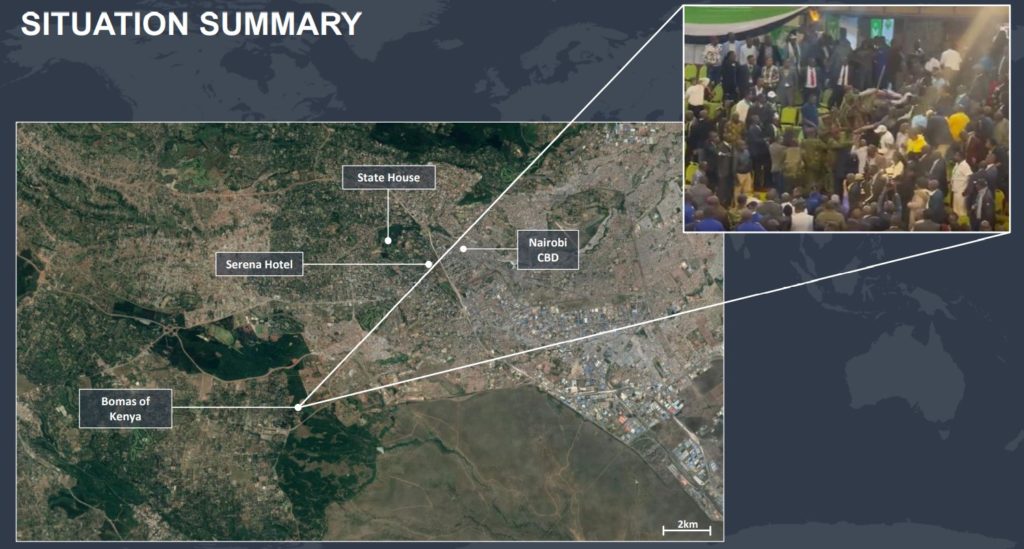
Solace Global Advice
• Widespread unrest and violence remains possible in the short term. Travellers should avoid all demonstrations and large public gatherings as they may escalate quickly and without warning. Immediately vacate the area if caught in unrest.
• In the event of a significant security development, travellers in Kenya should follow any instructions issued by the Kenyan government or local authorities.
• Areas where political figures are known to gather are likely to be focal points for political activism and unrest, especially sites associated with the Presidential office or known protest hotspots. You should be particularly vigilant in these areas and follow any specific advice from the local security authorities.
• Expect localised travel disruption and an enhanced security force posture in the short-term. Allow for additional time when travelling in-country, as protest action and increased security force presence may result in road closures or blockades.
• Ensure that you always carry personal identification documents. Consider making photocopies of important documents in case of confiscation, theft or loss.
• Make sure you are familiar with contact details for the emergency services in Kenya – dial 999 / 112 / 911 to request police, medical assistance or fire brigade.
• Exercise increased caution, remain vigilant, be aware of your surroundings and report any suspicious activity to security personnel as soon as possible.
• If caught in the vicinity of a security incident, seek shelter immediately and leave the area if safe to do so. Continue to adhere to all instructions issued by authorities and obey any security cordons in place.
• Report any suspicious items and behaviours to the nearest security or police officials.
• Monitor the Solace Secure platform and local media for updates.
Support for operations in Kenya
Our team of risk management specialists and intelligence analysts, combined with on-the-ground security support from our global partner network can help secure your operations.
Learn more about how we can secure your operations
US speaker Nancy Pelosi visits Taiwan
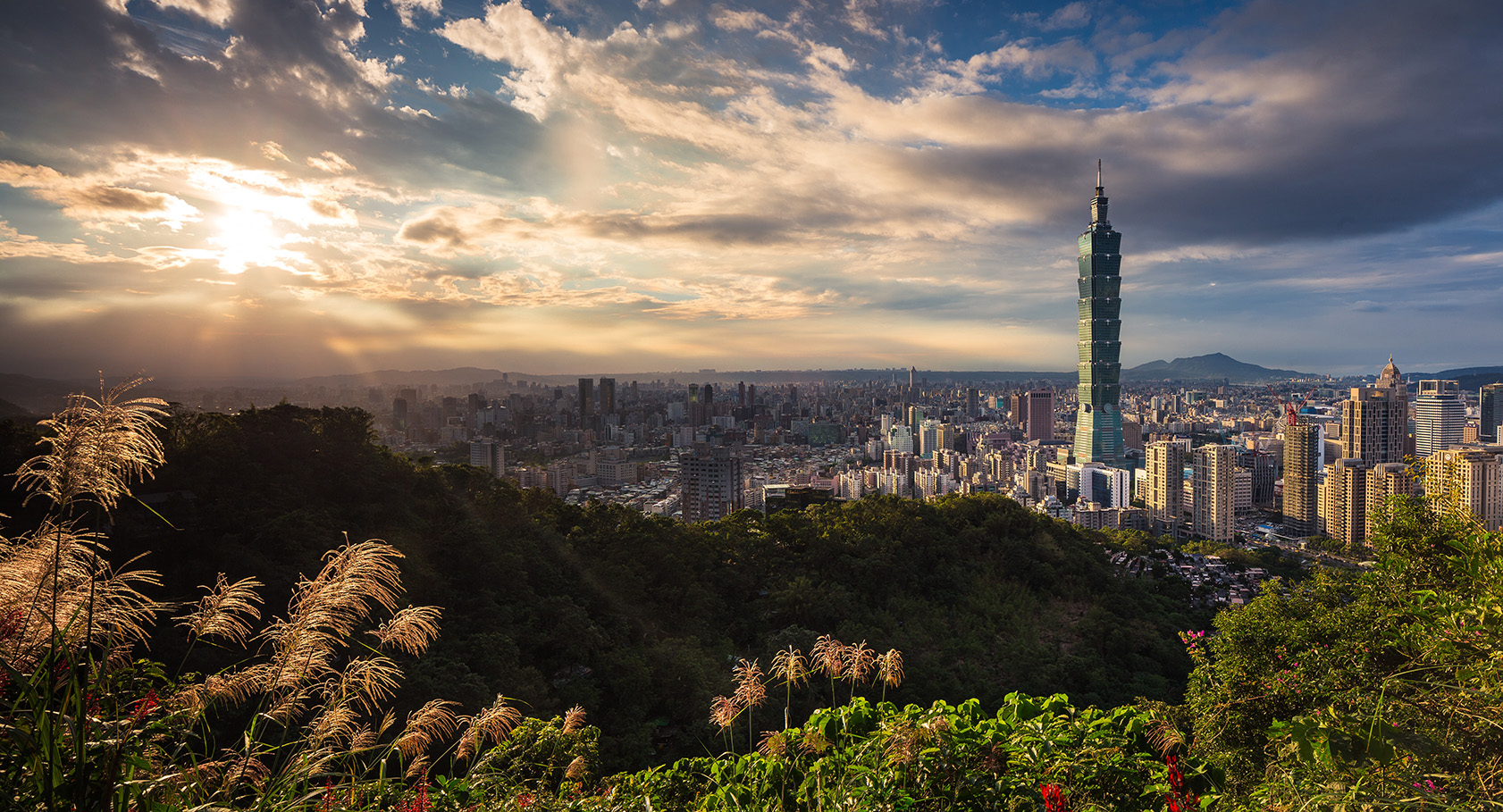
Situation Summary
A delegation of American politicians, including House Speaker and senior Democratic politician Nancy Pelosi, landed at Taipei Shongshan Airport in the Republic of China (ROC, or Taiwan) on 2 August. The visit to Taiwan comes amidst an ongoing tour of the Asia-Pacific by the high-profile delegation, which has been conducted for the purpose of reaffirming American commitments to the region. Countries such as Singapore, Malaysia, South Korea, and Japan were included on the official itinerary list, but the visit to Taiwan was hidden, likely out of concerns that any official confirmation would prompt a harsh response from the People’s Republic of China (PRC, or China).
Intelligence suggesting that Nancy Pelosi would visit Taiwan prompted a series of warnings from the Chinese government and state media broadcasters. China warned that any visit to Taiwan would be considered as a provocation that would necessitate a diplomatic and, in some communications, military response from Chinese authorities. Speculation of Nancy Pelosi’s visit prompted China to engage in aggressive military maneuvers in the Taiwan Strait during the morning of 2 August, including the positioning of warships and aircraft along the contested Median Line. A Distributed Denial-of-Service (DDoS) attack was later recorded against the website of Taiwan’s presidential office.
Four US Navy warships, including the USS Ronald Reagan aircraft carrier and the USS Tripoli amphibious assault ship, have been operating east of Taiwan. US officials have stressed that their positioning was prompted by a “routine deployment”, but US military authorities remain on high alert due to the increased risk of miscommunication and miscalculation stemming from the elevated number of both US and Chinese military assets in the region.
In response, Chinese authorities announced three-day military drills will commence near Taiwan from 4 August.
Solace Global Comment
Nancy Pelosi’s visit to Taiwan represents the most senior visit by a US official since the visit of House Speaker and Republican politician Newt Gingrich to Taipei in 1997. Newt Gingrich’s visit prompted irritation within China but was tolerated at the time. Since 1997, however, China’s role in the global economy has grown exponentially, and China has begun to exercise a more assertive role in both regional and global diplomacy. There is now an increased willingness within the Chinese government to adopt a more hawkish stance towards Taiwan, which is actively considered to be one of China’s core national interests, alongside increasingly bellicose rhetoric regarding reunification.
Taiwanese self-governance and the perception of Taiwan as an integral territory of China has prompted the Chinese government to enforce a ‘One China’ policy in its global relations; a practice which the US has acknowledged since President Richard Nixon’s decision to thaw relations between the US and China in 1972. Despite this, the incumbent Chinese Foreign Minister Wang Yi has accused US President Joe Biden of conducting a “fake” One China policy, and Chinese President Xi Jinping has warned the US “not to play with fire” over the legal and diplomatic status of Taiwan.
Although an invasion of Taiwan remains highly unlikely in the near-term due to the complexity of an amphibious assault across the Taiwan Strait, geopolitical and economic impact, and the potential for US involvement in the conflict, Nancy Pelosi’s visit is certain to escalate tensions further and will very likely lead to an increased Chinese military presence in the region over the coming weeks. Chinese officials have likely calculated that there is a need to reassert Chinese credibility over their red lines in Taiwan, given the current trajectory of US-Taiwan relations. A further military response remains realistically possible, such as live-fire exercises, significant naval and aerial posturing off Taiwan, or potentially missile tests in the vicinity of the Taiwan Strait. A Taiwanese response should be anticipated, and the potential for miscalculation should not be ruled out. China may also seek to conduct retaliatory actions towards the US through economic levers.
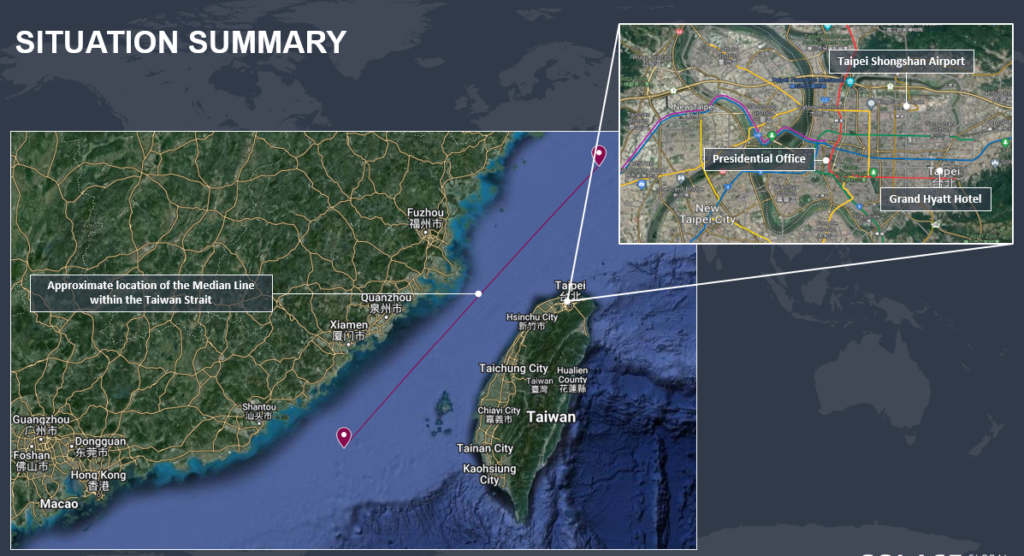
Solace Global Advice
•In the event of a significant security development, travellers in Taiwan should follow any instructions issued by the Taiwanese government.
•Political tensions may disrupt airspace in both China and Taiwan. It is advised to monitor flight information and check with your travel provider if you are unsure of the status of your flight.
•Instances of civil unrest within Taiwan cannot be ruled out. Travellers should avoid all demonstrations and large public gatherings as they may escalate quickly and without warning.
•Areas where political figures are known to gather are likely to be focal points for political activism and unrest, especially sites due to be attended by Nancy Pelosi or other delegates. You should be particularly vigilant in these areas and follow any specific advice from the local security authorities.
•Expect localised travel disruption and an enhanced security force posture in the short-term as Taiwanese authorities increase measures to protect the US delegation.
• Be aware that China may seek to retaliate for Nancy Pelosi’s visit within the economic, cyber, and diplomatic domains, which could place additional restrictions on business operations and travel within China, Taiwan, and the wider region.
• Make sure you are familiar with contact details for the emergency services (in Taiwan – dial 110 for the police, 119 for medical assistance or the fire brigade).
• Exercise increased caution, remain vigilant, be aware of your surroundings and report any suspicious activity to security personnel as soon as possible.
• If caught in the vicinity of a security incident, seek shelter immediately and leave the area if safe to do so. Continue to adhere to all instructions issued by authorities and obey the security cordon in place.
• Report any suspicious items and behaviours to the nearest security or police officials.
• Monitor the Solace Secure platform and local media for updates.
Understand the situation with bespoke intelligence
Be in the know with intelligence reports built directly around your operational requirements.
Alert Plus – Apparent Coup in Mali, President Keita Resigns

SITUATION SUMMARY: Apparent Coup in Mali
During a televised address, Malian President Ibrahim Boubacar Keita resigned. The announcement comes after the president was detained by soldiers on Tuesday, 18 August. The country’s parliament has also been dissolved, plunging the country into political uncertainty. It remains unclear if the military is now officially in charge of the country.
The news of the president’s departure was met with jubilation by protesters in the country’s capital. Footage on social media and media websites show people dancing and cheering on military vehicles and soldiers as they move around Bamako. The Ministry of Justice building was also set alight in celebration.
All land and air borders in the country have been closed and a curfew has been implemented from 09:00 to 17:00 until further notice. Military leaders have pledged to set up a civilian transitional government, inviting the country’s civil society and political parties to join them to prepare for elections.
The driving force behind the apparent coup appears to have stemmed from mutinying soldiers who took control of the Kati military camp. The soldiers then moved on the capital and arrested the president, Prime Minister Boubou Cisse and other senior government officials. The numbers of those involved remains undetermined as well as who will now take the leadership of the government.
The events came following a long political crisis where opposition protesters have taken to the streets demanding the departure of Keita. Protesters have accused Keita of allowing the economy to collapse thus worsening the security situation across the country.
Foreign embassies have announced that citizens/travellers based in Bamako should remain indoors where possible and avoid protests, especially within the capital. The coup has been condemned by the European Union, African Union and the United Nations, as well as representatives of several countries.
SOLACE GLOBAL COMMENT
Details surrounding the coup remain unclear, the mutiny appears to have started in Kati, similarly to the coup that occurred in 2012. The mutiny also comes off the back of ongoing protests that began on 5 June.
The country’s protests had been growing in recent weeks, with demonstrators complaining that not enough has been done to address the issues that the country faces. The protesters pointed fingers at those in charge for failing to adequately address the country’s struggling economy, improve job prospects, and fight corruption and the ongoing insurgency that is not only destabilising the country, but also the wider region.
Keita has, in 2013 when he won election by a landslide, vowed a zero-tolerance for corruption. However, the former president’s popularity has faded over time. While he was reelected in the 2018 presidential elections, they were marred by low turnout and fraud allegations, which created frustration among the public, particularly among the country’s youth.
The pressure on Keita has only grown since the beginning of the protests in June. With the fight against insurgents dragging on, despite French military support, poor economic prospects and violent protests, the former president’s position was becoming untenable. Indeed, regional mediators had arrived in Bamako to try and ease the unrest; however, the military decided to step in.
The coup represents a major setback for France. Paris has invested heavily in the country both financially and militarily with over $1 billion in funding and 5,000 soldiers. Many Malians are now calling on the French to withdraw their troops following the perceived lack of progress.
The instability created by the coup also heightens the risk that Islamic extremist insurgents and Tuareg rebels may look to exploit the situation. With the Malian military struggling to maintain control over large parts of the country, France has recently increased its efforts and is seeking increased European military support.
SOLACE GLOBAL ADVICE
- If currently in the country, especially the capital and the surrounding area, travellers should remain indoors and minimize all movement for the time being.
- Be aware that all land and air borders are currently closed, travel will be deferred until these restrictions have been lifted.
- Avoid political and governmental buildings in Bamako due to the likelihood of unrest.
- Ensure that you carry personal identification documents at all times. Consider making photocopies of important documents incase of confiscation, theft or loss.
- Travellers should have a grab bag packed and ready, said bag should be carried whenever leaving your residence.
- Review and update your escalation and evacuation plans for Mali, focusing on what protocols staff members should follow in the event there is major deterioration in the security environment.
- Anticipate a heightened military presence throughout the city with additional security being reported near all major political and media buildings. Exercise vigilance and follow all official directives.
- Travellers should follow local media and use the Solace Secure app to stay up to date with security-related events including potential protests, clashes or additional military deployment.


